Right-wing populism
Right-wing populism, also called national populism and right-wing nationalism,[1][2] is a political ideology which combines right-wing politics and populist rhetoric and themes. The rhetoric often consists of anti-elitist sentiments, opposition to the Establishment, and speaking to the "common people". Both right-wing populism and left-wing populism object to the perceived control of liberal democracies by elites; however, populism of the left also objects to the power of large corporations and their allies, while populism of the right normally supports strong controls on immigration.[3][4]
| Part of a series on |
| Populism |
|---|
|
| Part of a series on |
| Nationalism |
|---|
|
| Part of a series on |
| Conservatism |
|---|
 |
|
In Europe, the term right-wing populism is used to describe groups, politicians and political parties that are generally known for their opposition to immigration,[5] especially from the Islamic world,[6] and for Euroscepticism.[7] Right-wing populism in the Western world is generally associated with ideologies such as anti-environmentalism,[8] neo-nationalism,[9][10] anti-globalization,[11] nativism,[12][13] and protectionism.[14] European right-wing populists also typically support expanding the welfare state, but barring undocumented immigrants from receiving government benefits; this concept has been referred to as "welfare chauvinism".[15][16][17]
From the 1990s, right-wing populist parties became established in the legislatures of various democracies. Although extreme right-wing movements in the United States (where they are normally referred to as the "radical right") have been characterized atomistically, some writers consider them to be a part of a broader, right-wing populist phenomenon.[18]
Since the Great Recession,[19][20][21] European right-wing populist movements such as the National Rally (formerly the National Front) in France, the League in Italy, the Party for Freedom and the Forum for Democracy in the Netherlands, the Finns Party, the Sweden Democrats, Danish People's Party, the Freedom Party of Austria, the UK Independence Party and the Brexit Party began to grow in popularity,[22][23] in large part due to increasing opposition to immigration from the Middle East and Africa, rising Euroscepticism and discontent with the economic policies of the European Union.[24] U.S. President Donald Trump won the 2016 United States presidential election after running on a platform that included right-wing populist themes.[25]
Definition
Classification of right-wing populism into a single political family has proved difficult and it is not certain whether a meaningful category exists, or merely a cluster of categories since the parties differ in ideology, organization and leadership rhetoric. Unlike traditional parties, they also do not belong to international organizations of like-minded parties, and they do not use similar terms to describe themselves.[26]
Cas Mudde argues that two definitions can be given of the "populist radical right": a maximum and a minimum one, with the "maximum" group being a subgroup of the "minimum" group. The minimum definition describes what Michael Freeden has called the "core concept"[lower-alpha 1] of the right-wing populist ideology, that is the concept shared by all parties generally included in the family. Looking at the primary literature, Mudde concludes that the core concept of right-populism "is undoubtedly the "nation". "This concept", he explains, "also certainly functions as a "coat-hanger" for most other ideological features. Consequently, the minimum definition of the party family should be based on the key concept, the nation". He however rejects the use of "nationalism" as a "core ideology" of right-wing populism on the ground that there are also purely "civic" or "liberal" forms of nationalism, preferring instead the term "nativism": a xenophobic form of nationalism asserting that "states should be inhabited exclusively by members of the native group ("the nation"), and that non-native elements (persons and ideas) are fundamentally threatening to the homogeneous nation-state". Mudde further argues that "while nativism could include racist arguments, it can also be non-racist (including and excluding on the basis of culture or even religion)", and that the term nativism does not reduce the parties to mere single-issue parties, such as the term "anti-immigrant" does. In the maximum definition, to nativism is added authoritarianism—an attitude, not necessary anti-democratic or automatic, to prefer "law and order" and the submission to authority[lower-alpha 2]—and populism—a "thin-centered ideology that considers society to be ultimately separated into two homogeneous and antagonistic groups, "the pure people" versus "the corrupt elite", and which argues that politics should be an expression of the "general will of the people", if needed before human rights or constitutional guarantees.[lower-alpha 3][27] Cas Mudde and Cristóbal Rovira Kaltwasser reiterated in 2017 that within European right-wing populism there is a "marriage of convenience" of populism based on an "ethnic and chauvinistic definition of the people", authoritarianism, and nativism. This results in right-wing populism having a "xenophobic nature."[28]
Roger Eatwell, Emeritus Professor of Comparative Politics at the University of Bath, writes that "whilst populism and fascism differ notably ideologically, in practice the latter has borrowed aspects of populist discourse and style, and populism can degenerate into leader-oriented authoritarian and exclusionary politics."[29] For populism to transition into fascism or proto-fascism, it requires a "nihilistic culture and an intractable crisis."[30]
[P]opulism is like fascism in being a response to liberal and socialist explanations of the political. And also like fascism, populism does not recognize a legitimate political place for an opposition that it regards as acting against the desires of the people and that it also accuses of being tyrannical, conspiratorial, and antidemocratic. ... The opponents are turned into public enemies, but only rhetorically. If populism moves from rhetorical enmity to practices of enemy identification and persecution, we could be talking about its transformation into fascism or another form of dictatorial repression. This has happened in the past ... and without question it could happen in the future. This morphing of populism back into fascism is always a possibility, but it is very uncommon, and when it does happen, and populism becomes fully antidemocratic, it is no longer populism.[31]
In summary, Erik Berggren and Andres Neergard wrote in 2015 that "[m]ost researchers agree [...] that xenophobia, anti-immigration sentiments, nativism, ethno-nationalism are, in different ways, central elements in the ideologies, politics, and practices of right-wing populism and Extreme Right Wing Parties."[32] Similarly, historian Rick Shenkman describes the ideology presented by right-wing populism as "a deadly mix of xenophobia, racism, and authoritarianism."[33] Tamir Bar-On also concluded in 2018 that the literature generally places "nativism" or "ethnic nationalism" as the core concept of the ideology, which "implicitly posits a politically dominant group, while minorities are conceived as threats to the nation". It is "generally, but not necessarily racist";[34] in the case of the Dutch PVV for instance, "a religious [minority, i.e. Muslims] instead of an ethnic minority constitutes the main 'enemy'".[35]
Scholars use terminology inconsistently, sometimes referring to right-wing populism as "radical right"[36] or other terms such as new nationalism.[37] Pippa Norris noted that "standard reference works use alternate typologies and diverse labels categorising parties as 'far' or 'extreme' right, 'new right', 'anti-immigrant' or 'neofascist', 'antiestablishment', 'national populist', 'protest', 'ethnic', 'authoritarian', 'antigovernment', 'antiparty', 'ultranationalist', 'neoliberal', 'right-libertarian' and so on".[38]
Motivations and methods
To Roger Eatwell and Matthew Goodwin, "national populists prioritize the culture and interests of the nation, and promise to give voice to a people who feel that they have been neglected, even held in contempt, by distant and often corrupt elites." They are part, Eatwell and Goodwin follow, of a "growing revolt against mainstream politics and liberal values. This challenge is in general not anti-democratic. Rather, national populists are opposed to certain aspects of liberal democracy as it has evolved in the West. [...] [Their] "direct" conception of democracy differs from the "liberal" one that has flourished across the West following the defeat of fascism and which has gradually become more elitist in character." Furthermore, national populists question what they call the "erosion of the nation-state", "hyper ethnic change" and the "capacity to rapidly absorb [high] rates of immigration", the "highly unequal societies" of the West's current economic settlement, and are suspicious of "cosmopolitan and globalizing agendas".[2] Populist parties use crisis in their domestic governments to enhance anti-globalist reactions; these include refrainment towards trade and anti-immigration policies. The support for these ideologies commonly comes from people whose employment might have low occupational mobility. This makes them more likely to develop an anti-immigrant and anti-globalization mentality that aligns with the ideals of the populist party.[39]
Jean-Yves Camus and Nicolas Lebourg see "national populism" as an attempt to combine socio-economical values of the left and political values of the right, and the support for a referendary republic that would bypass traditional political divisions and institutions. As they aim at a unity of the political (the demos), ethnic (the ethnos) and social (the working class) interpretations of the "people", national populists claim to defend the "average citizen" and "common sense", against the "betrayal of inevitably corrupt elites".[40] As Front National ideologue François Duprat put in the 1970s, inspired by the Latin American right of that time, right-populism aims to constitute a "national, social, and popular" ideology. If populism itself is shared by both left and right parties, their premises are indeed different in that right-wing populists perceive society as in a state of decadence, from which "only the healthy common people can free the nation by forming one national class from the different social classes and casting aside the corrupt elites".[41]
Methodologically, by co-opting concepts from the left – such as multiculturalism and ethnopluralism, which is espoused by the left as a means of preserving minority ethnic cultures within a pluralistic society – and then jettisoning their non-hierarchical essence, right-wing populists are able to, in the words of sociologist Jens Rydgren, "mobilize on xenophobic and racist public opinions without being stigmatized as racists."[42]
History
Europe
European right-wing populism can be traced back to the period 1870–1900 in the aftermath of the Franco-Prussian War, with the nascence of two different trends in Germany and France: the Völkisch movement and Boulangism.[43] Völkischen represented a romantic nationalist, racialist, and from the 1900s antisemitic tendency in German society, as they idealized a bio-mystical "original nation", that still could be found in their views in the rural regions, a form of "primitive democracy freely subjected to their natural elites".[44][43] In France, the anti-parliamentarian Ligue des Patriotes, led by Boulanger, Déroulède and Barrès, called for a "plebiscitary republic", with the president elected by universal suffrage, and the popular will expressed not through elected representatives (the "corrupted elites"), but rather via "legislative plebiscites", another name for referendums.[43] It also evolved to antisemitism after the Dreyfus affair (1894).[45]
Modern national populism—what Pierro Ignazi called "post-industrial parties"[46]—emerged in the 1970s, in a dynamic sustained by voters' rejection of the welfare state and of the tax system, both deemed "confiscatory"; the rise of xenophobia against the backdrop of immigration which, because originating from outside Europe, was considered to be of a new kind; and finally, the end of the prosperity that had reigned since the post–World War II era, symbolized by the oil crisis of 1973. Two precursor parties consequently appeared in the early 1970s: the Progress Party, ancestor of the Danish People's Party; and the Anders Lange's Party in Norway.[40]
A new wave of right-wing populism arose in the aftermath of the September 11 attacks. "Neo-populists" are nationalist and Islamophobic politicians who aspire "to be the champions of freedoms for minorities (gays, Jews, women) against the Arab-Muslim masses"; a trend first embodied by the Dutch Pim Fortuyn List, and later followed by Geert Wilders' Party for Freedom and Marine Le Pen's National Rally. According to Jean-Yves Camus and Nicolas Lebourg, those parties are however not a real syncretism of the left and right, as both their ideology and voter base are interclassist.[lower-alpha 4] Furthermore, neo-populist parties went from a critique of the welfare state to that of multiculturalism, and their priority demand remains the reduction of immigration.[47] Political scientist Gaël Brustier defines that new populist trend as a "national security hedonism", that is the alliance between liberal individualism and national security concerns.[48]
By country
Piero Ignazi divided right-wing populist parties, which he called "extreme right parties", into two categories: he placed traditional right-wing parties that had developed out of the historical right and post-industrial parties that had developed independently. He placed the British National Party, the National Democratic Party of Germany, the German People's Union and the former Dutch Centre Party in the first category, whose prototype would be the disbanded Italian Social Movement; whereas he placed the French National Front, the German Republicans, the Dutch Centre Democrats, the former Belgian Vlaams Blok (which would include certain aspects of traditional extreme right parties), the Danish Progress Party, the Norwegian Progress Party and the Freedom Party of Austria in the second category.[46][49]
Right-wing populist parties in the English-speaking world include the UK Independence Party and Australia's One Nation.[50] The U.S. Republican Party and Conservative Party of Canada include right-wing populist factions.
Brazil

In Brazil, right-wing populism began to rise roughly around the time Dilma Rousseff won the 2014 presidential election.[51] In the Brazilian general election of 2014, Levy Fidelix, from the Brazilian Labour Renewal Party[52] presented himself with a conservative speech and, according to him, the only right-wing candidate. He spoke for traditional family values and opposed abortion, legalization of marijuana, same-sex marriage and proposed homosexual individuals to be treated far away from the good citizens' and workers' families.[53] In the first round of the general election, Fidelix received 446,878 votes, representing 0.43% of the popular vote.[54] Fidelix ranked 7th out of 11 candidates. In the second round, Fidelix supported candidate Aécio Neves.[55]
In addition, according to the political analyst of the Inter-Union Department of Parliamentary Advice Antônio Augusto de Queiroz the National Congress elected in 2014 may be considered the most conservative since the "re-democratization" movement, noting an increase in the number of parliamentarians linked to more conservative segments, such as ruralists, the military, the police and the religious right. The subsequent economic crisis of 2015 and investigations of corruption scandals led to a right-wing movement that sought to rescue fiscally and socially conservative ideas from in opposition to the left-wing policies of the Workers' Party. At the same time, young market liberals and right-libertarians such as those that make up the Free Brazil Movement emerged among many others. For Manheim (1952), within a single real generation there may be several generations which he called "differentiated and antagonistic". For him, it is not the common birth date that marks a generation, though it matters, but rather the historical moment in which they live in common. In the case, the historical moment was the impeachment of Dilma Rousseff. They can be called the "post-Dilma generation".[56]
Centrist interim President Michel Temer took office following the impeachment of President Rousseff. Temer held 3% approval ratings in October 2017,[57] facing a corruption scandal after accusations for obstructing justice and racketeering were placed against him.[58] He managed to avoid trial thanks to the support of the right-wing parties in the Brazilian Congress.[57][58] On the other hand, President of the Senate Renan Calheiros, who was acknowledged as one of the key figures behind Rousseff's destitution and member of the Centrist Brazilian Democratic Movement Party, was himself removed from office after facing embezzlement charges.[59]
In March 2016, after entering the Social Christian Party, far-right congressman Jair Bolsonaro decided to run for President of the Republic. In 2017, he tried to become the presidential nominee of Patriota, but, eventually, Bolsonaro entered the Social Liberal Party[60] and, supported by the Brazilian Labour Renewal Party, he won the 2018 presidential election followed by left-wing former Mayor of São Paulo Fernando Haddad of Luiz Inácio Lula da Silva's Workers' Party.[61][62][63] Lula was banned to run after being convicted on criminal corruption charges and being imprisoned.[64][65][66] Bolsonaro has been accused of racist,[67] xenophobic,[68] misogynistic[69] and homophobic rhetoric. His campaign was centered on opposition to crime, political corruption, LGBT identity and support for tax cuts, militarism, Catholicism and Evangelicalism.[70][71]
Canada
Canada has a history of right-wing populist protest parties and politicians, most notably in Western Canada partly due to the idea of Western alienation. The highly successful Social Credit Party of Canada consistently won seats in British Columbia, Alberta, and Saskatchewan, but fell into obscurity by the 1970s. The Reform Party of Canada led by Preston Manning was another right-wing populist party formed as a result of the policies of the centre-right Progressive Conservative Party of Canada which alienated many Blue Tories. The two parties ultimately merged into the Conservative Party of Canada.
In recent years, right-wing populist elements have existed within the Conservative Party of Canada and mainstream provincial parties, and have most notably been espoused by Ontario MP Kellie Leitch; businessman Kevin O'Leary; Quebec Premier François Legault; the former Mayor of Toronto, Rob Ford; and his brother, Ontario Premier Doug Ford.[72][73][74][75]
In August 2018, Conservative MP Maxime Bernier left the party, and the following month he founded the People's Party of Canada, which has been described as a "right of centre, populist" movement.[76]
Costa Rica
In the most recent political campaign, both Evangelical Christian candidate Fabricio Alvarado[77][78] and right-wing anti-establishment candidate Juan Diego Castro[79][80] were described as examples of right-wing populists.
United States
Early antecedents of right-wing populism which existed in the USA during the 1800s include the Anti-Masonic and Know-Nothing Parties. The Populist Party (which existed in the 1890s) was a primarily left-wing populist movement.
Moore (1996) argues that "populist opposition to the growing power of political, economic, and cultural elites" helped shape "conservative and right-wing movements" since the 1920s.[81] Historical right-wing populist figures in both major parties in the United States have included Thomas E. Watson, Strom Thurmond, Joe McCarthy, Barry Goldwater, George Wallace and Pat Buchanan.[82]
The Tea Party movement has been characterized as "a right-wing anti-systemic populist movement" by Rasmussen and Schoen (2010). They add: "Today our country is in the midst of a...new populist revolt that has emerged overwhelmingly from the right – manifesting itself as the Tea Party movement".[83] In 2010, David Barstow wrote in The New York Times: "The Tea Party movement has become a platform for conservative populist discontent".[84] Some political figures closely associated with the Tea Party, such as U.S. Senator Ted Cruz and former U.S. Representative Ron Paul, have been described as appealing to right-wing populism.[85][86][87] In the U.S. House of Representatives, the Freedom Caucus, which is associated with the Tea Party movement, has been described as right-wing populist.[88]
Donald Trump's 2016 presidential campaign, noted for its anti-establishment, anti-immigration and anti-free trade rhetoric, was characterized as that of a right-wing populist.[89][90] The ideology of Trump's former Chief Strategist, Steve Bannon, has also been described as such.[91] According to a 2018 study, there is a strong correlation between the ratio of U.S. jobs that were lost to automation and the states—such as Iowa, Michigan, Ohio, Pennsylvania and Wisconsin—that voted for Barack Obama in 2012 and for Trump in 2016.[92]
Australia

The main right-wing populist party in Australia is One Nation, led by Pauline Hanson, Senator for Queensland.[93] One Nation typically supports the governing Coalition.[94]
Other parties formerly represented in the Australian Parliament with right-wing populist elements and rhetoric include the Australian Conservatives, led by Cory Bernardi, Senator for South Australia,[95] the libertarian Liberal Democratic Party, led by David Leyonhjelm, Senator for New South Wales,[96] and Katter's Australian Party, led by Queensland MP Bob Katter.[97] The Liberal Democratic Party and the Australian Conservatives previously formed a voting bloc in the Australian Senate.[98]
Some figures within the Liberal Party of Australia, which is part of the Coalition, have been described as right-wing populists, including former Prime Minister Tony Abbott[99] and Home Affairs Minister Peter Dutton.[100]
India
In India, right-wing populism came into the picture in the late 1980s by current ruling Bharatiya Janata Party (BJP), the political party having close relation to the Rashtriya Swayamsevak Sangh (RSS). Right-wing populism has been fostered by RSS which stands against persecution of Hindus by various invading forces over the centuries and have also been attributed to the concept of Hindutva. It vows to protect the ancient religion and culture of Hinduism and have strong views against destruction of its ancient heritage, in India. BJP became a significant force in the state legislative assemblies and in the parliament in the 1990s by raising the issue of Ram Mandir (temple) establishment by demolishing the existing Babri Masjid (constructed by demolishing a Hindu temple) in Ayodhya, in the state of Uttar Pradesh. BJP and other conservative right wing organization such as Vishva Hindu Parishad, Akhil Bharatiya Hindu Mahasabha etc. argues that the Masjid was built by Babur, the Muslim, Turco-Mongol founder of the Mughal Empire in India in 1526, by demolishing a temple, dedicated to Lord Ram. This issue is known as the Ayodhya Dispute for which the final judgement was declared by the Supreme Court of India on 9 November 2019. The Supreme Court of India ordered the disputed land (2.77 acres) to be handed over to a trust (to be created by Government of India) to build the Ram Janmabhoomi (revered as the birthplace of Hindu deity, Ram) temple. The court also ordered the government to give an alternate 5 acres (almost double that of the Ram Janmabhumi) of land in another place to the Sunni Waqf Board for the purpose of building a mosque.
In recently concluded 2019 Indian general election, the National Democratic Alliance (NDA) led by BJP have swept across the elections with unprecedented majority of 353 seats by gaining popularity across India and reducing the United Progressive Alliance led by Indian National Congress to only 91 seats.
Japan
Former Prime Ministers Shinzo Abe and Junichiro Koizumi are both right-wing nationalists and populists.
In a speech to LDP lawmakers in Tokyo on March 8, 2019, Steve Bannon said that “Prime Minister Abe is a great hero to the grassroots, the populist, and the nationalist movement throughout the world.”[101]
Pakistan
The recent wave of right-wing populism is in Pakistan in the form of Pakistan Tehreek Insaaf (PTI).[102] Its leader Imran Khan has furiously attacked traditional politicians and made people believe that only he has the solutions.[102] British journalist Ben Judah, in an interview, compared Imran Khan with Donald Trump on his populist rhetoric.[103]
South Korea
.jpg.webp)
Conservatism in South Korea has traditionally been more inclined toward elitism than populism. However, since the 2016 South Korean political scandal, Korean conservative forces have changed their political lines to populism as the distrust of the elite spread among the Korean public.[104]
Hong Joon-pyo and Lee Un-ju of the United Future Party are leading right-wing populists advocating anti-homosexuality, anti-immigration and social conservatism.[105][106]
European countries
.png.webp)
Right-wing populists represented in the parliament
Right-wing populists providing external support for government
Right-wing populists involved in the government
Right-wing populists appoint prime minister/president
Senior European Union diplomats cite growing anxiety in Europe about Russian financial support for far-right and populist movements and told the Financial Times that the intelligence agencies of "several" countries had stepped up scrutiny of possible links with Moscow.[107] In 2016, the Czech Republic warned that Russia tries to "divide and conquer" the European Union by supporting right-wing populist politicians across the bloc.[108] However, as there in the United States of America, there seems to be an underlying problem that isn't massively discussed in the media. That underlying problem is that of housing. A 2019 study shows an immense correlation between the price of housing and voting for populist parties.[109] In that study, it was revealed that the French citizens that saw the price of their houses stagnate or drop, were much more likely to vote for Marine Le Pen in the 2017 French presidential election. Whereas those that the price of their house rise, were much more likely to vote for Emmanuel Macron. The same pattern emerged in the 2016 United Kingdom European Union membership referendum, in which those that saw the price of their house rise, voted to Remain. Whereas those that saw it flatline or drop, voted to Leave.
Austria
The Austrian Freedom Party (FPÖ) established in 1955 claims to represent a "Third Camp" (Drittes Lager), beside the Socialist Party and the social Catholic Austrian People's Party. It succeeded the Federation of Independents founded after World War II, adopting the pre-war heritage of German nationalism, although it did not advocate Nazism and placed itself in the political centre. Though it did not gain much popularity for decades, it exercised considerable balance of power by supporting several federal governments, be it right-wing or left-wing, e.g. the Socialist Kreisky cabinet of 1970 (see Kreisky–Peter–Wiesenthal affair).
.JPG.webp)
From 1980, the Freedom Party adopted a more liberal stance. Upon the 1983 federal election, it entered a coalition government with the Socialist Party, whereby party chairman Norbert Steger served as Vice-Chancellor. The liberal interlude however ended, when Jörg Haider was elected chairman in 1986. By his down-to-earth manners and patriotic attitude, Haider re-integrated the party's nationalist base voters. Nevertheless, he was also able to obtain votes from large sections of population disenchanted with politics by publicly denouncing corruption and nepotism of the Austrian Proporz system. The electoral success was boosted by Austria's accession to the European Union in 1995.
Upon the 1999 federal election, the Freedom Party (FPÖ) with 26.9% of the votes cast became the second strongest party in the National Council parliament. Having entered a coalition government with the People's Party, Haider had to face the disability of several FPÖ ministers, but also the impossibility of agitation against members of his own cabinet. In 2005, he finally countered the FPÖ's loss of reputation by the Alliance for the Future of Austria (BZÖ) relaunch in order to carry on his government. The remaining FPÖ members elected Heinz-Christian Strache chairman, but since the 2006 federal election both right-wing parties have run separately. After Haider was killed in a car accident in 2008, the BZÖ has lost a measurable amount of support.
The FPÖ regained much of its support in subsequent elections. Its candidate Norbert Hofer made it into the runoff in the 2016 presidential election, though he narrowly lost the election. After the 2017 legislative elections, the FPÖ formed a government coalition with the Austrian People's Party, but lost seats in 2019.
Belgium

Vlaams Blok, established in 1978, operated on a platform of law and order, anti-immigration (with particular focus on Islamic immigration) and secession of the Flanders region of the country. The secession was originally planned to end in the annexation of Flanders by the culturally and linguistically similar Netherlands until the plan was abandoned due to the multiculturalism in that country. In the elections to the Flemish Parliament in June 2004, the party received 24.2% of the vote, within less than 2% of being the largest party.[110] However, in November of the same year, the party was ruled illegal under the country's anti-racism law for, among other things, advocating segregated schools for citizens and immigrants.[111]
In less than a week, the party was re-established under the name Vlaams Belang, with a near-identical ideology. It advocates the adoption of the Flemish culture and language by immigrants who wish to stay in the country.[112] Despite some accusations of antisemitism from Belgium's Jewish population, the party has demonstrated a staunch pro-Israel stance as part of its opposition to Islam.[113] With 23 of 124 seats, Vlaams Belang leads the opposition in the Flemish Parliament[114] and it also holds 11 out of the 150 seats in the Belgian House of Representatives.[115]
Mischaël Modrikamen, an associate of Steve Bannon, was chairman of the Parti Populaire (PP), which contested elections in Wallonia.[61]
As of the 2019 federal, regional and European elections Vlaams Belang (VB) has surged from 248,843 votes in 2014 to 783,977 votes on the 26 May 2019.[116]
Bulgaria
Volya is a right-wing populist political party founded by Bulgarian businessman Veselin Mareshki on July 15, 2007. Before 2016, it was known variously as Today and Liberal Alliance.[117][118] The party advocates populist and reform policies, promoting patriotism, strict immigration controls, friendlier relations with Moscow, Bulgarian withdrawal form NATO, and the need to "sweep away the garbage" of a corrupt political establishment.[119][120]
Cyprus
The ELAM (National People's Front) (Εθνικό Λαϊκό Μέτωπο) was formed in 2008.[121] Its platform includes maintaining Cypriot identity, opposition to further European integration, immigration and the status quo that remains due to Turkey's invasion of a third of the island (and the international community's lack of intention to solve the issue).
Denmark
In the early 1970s, the home of the strongest right-wing-populist party in Europe was in Denmark, the Progress Party.[122] In the 1973 election, it received almost 16% of the vote.[123] In the following years, its support dwindled away, but was replaced by the Danish People's Party in the 1990s, which has gone on to be an important support party for the governing Liberal-Conservative coalition in the 2000s (decade).[124] The Danish People's Party is the largest and most influential right-wing populist party in Denmark today. It won 37 seats in the 2015 Danish general election[125] and became the second largest party in Denmark. The Danish People's Party advocates immigration reductions, particularly from non-Western countries, favor cultural assimilation of first generation migrants into Danish society and are opposed to Denmark becoming a multicultural society.
Additionally, the Danish People's Party's stated goals are to enforce a strict rule of law, to maintain a strong welfare system for those in need, to promote economic growth by strengthening education and encouraging people to work and in favor of protecting the environment.[126] In 2015, The New Right was founded,[127] but they have not yet participated in an election.
Finland
In Finland the main right-wing party is the Finns Party. Together with National Coalition and Centre-Party, it formed the government coalition after the 2015 parliamentary election. In 2017 the governmental branch broke off to form the Blue Reform, which took the coalition position from the Finns Party. Blue Reform is currently in government coalition and the Finns Party in opposition and are the fastest growing party in Finland.[128] In 2018 a Finnish member of the parliament Paavo Väyrynen formed the Seven Star Movement. The party is anti-immigration but is in center in economic politics.
France

France's National Front (NF) – renamed in 2018 as the "National Rally" – has been cited the "prototypical populist radical right-wing party".[28]
The party was founded in 1972 by Jean-Marie Le Pen as the unification of a number of French nationalist movements of the time, it was developed by him into a well-organized party.[28] After struggline for a decade, the party reached its first peak in 1984. By 2002, Le Pen received more votes than the Socialist candidate in the first round of voting for the French presidency, becoming the first time a NF candidate had qualified for a high-level run-off election.
Since Le Pen's daughter, Marine Le Pen, took over as the head of the party in 2011, the National Front has established itself as one of the main political parties in France. Marine Le Pen's policy of "de-demonizing", or normalizing the party resulted in her father, Jean-Marie Le Pen, being first suspended and then ejected from the party in 2015.
Marine Le Pen finished second in the 2017 election and lost in the second round of voting versus Emmanuel Macron which was held on 7 May 2017. However, polls published in 2018 showed that a majority of the French population consider the party to be a threat to democracy.[129]
Hungary

The 2018 Hungarian parliamentary election result was a victory for the Fidesz–KDNP alliance, preserving its two-thirds majority, with Viktor Orbán remaining Prime Minister. Orbán and Fidesz campaigned primarily on the issues of immigration and foreign meddling, and the election was seen as a victory for right-wing populism in Europe.
Germany

Since 2013, the most popular right-wing populist party in Germany has been Alternative for Germany which managed to finish third in the 2017 German federal election, making it the first right-wing populist party to enter the Bundestag, Germany's national parliament. Before, right-wing populist parties had gained seats in German State Parliaments only. Left-wing populism is represented in the Bundestag by The Left party.
On a regional level, right-wing populist movements like Pro NRW and Citizens in Rage (Bürger in Wut, BIW) sporadically attract some support. In 1989, The Republicans (Die Republikaner) led by Franz Schönhuber entered the Abgeordnetenhaus of Berlin and achieved more than 7% of the German votes cast in the 1989 European election, with six seats in the European Parliament. The party also won seats in the Landtag of Baden-Württemberg twice in 1992 and 1996, but after 2000 the Republicans' support eroded in favour of the far-right German People's Union and the Neo-Nazi National Democratic Party of Germany (NPD), which in the 2009 federal election held 1.5% of the popular vote (winning up to 9% in regional Landtag parliamentary elections).
In 2005, a nationwide Pro Germany Citizens' Movement (pro Deutschland) was founded in Cologne. The Pro Germany movement appears as a conglomerate of numerous small parties, voters' associations and societies, distinguishing themselves by campaigns against extremism[130] and immigrants. Its representatives claim a zero tolerance policy and the combat of corruption. With the denial of a multiethnic society (Überfremdung) and the islamization, their politics extend to far-right positions. Other minor right-wing populist parties include the German Freedom Party founded in 2010, the former East German German Social Union (DSU) and the dissolved Party for a Rule of Law Offensive ("Schill party").
Greece

The most prominent right-wing populist party in Greece is the Independent Greeks (ANEL).[131][132] Despite being smaller than the more extreme Golden Dawn party, after the January 2015 legislative elections ANEL formed a governing coalition with the left-wing Coalition of the Radical Left (SYRIZA), thus making the party a governing party and giving it a place in the Cabinet of Alexis Tsipras.[133]
The Golden Dawn has grown significantly in Greece during the country's economic downturn, gaining 7% of the vote and 18 out of 300 seats in the Hellenic Parliament. The party's ideology includes annexation of territory in Albania and Turkey, including the Turkish cities of Istanbul and Izmir.[134] Controversial measures by the party included a poor people's kitchen in Athens which only supplied to Greek citizens and was shut down by the police.[135]
The Popular Orthodox Rally is not represented in the Greek legislature, but supplied 2 of the country's 22 MEPS until 2014. It supports anti-globalisation and lower taxes for small businesses as well as opposition to Turkish accession to the European Union and the Republic of Macedonia's use of the name Macedonia as well as immigration only for Europeans.[136] Its participation in government has been one of the reasons why it became unpopular with its voters who turned to Golden Dawn in Greece's 2012 elections.[137]
Italy

In Italy, the most prominent right-wing populist party is Lega, formerly Lega Nord (Northern League),[138] whose leaders reject the right-wing label,[139][140][141] though not the "populist" one.[142] The League is a federalist, regionalist and sometimes secessionist party, founded in 1991 as a federation of several regional parties of Northern and Central Italy, most of which had arisen and expanded during the 1980s. LN's program advocates the transformation of Italy into a federal state, fiscal federalism and greater regional autonomy, especially for the Northern regions. At times, the party has advocated for the secession of the North, which it calls Padania. The party generally takes an anti-Southern Italian stance as members are known for opposing Southern Italian emigration to Northern Italian cities, stereotyping Southern Italians as welfare abusers and detrimental to Italian society and attributing Italy's economic troubles and the disparity of the North-South divide in the Italian economy to supposed inherent negative characteristics of the Southern Italians, such as laziness, lack of education or criminality.[143][144][145][146] Certain LN members have been known to publicly deploy the offensive slur "terrone", a common pejorative term for Southern Italians that is evocative of negative Southern Italian stereotypes.[143][144][147] As a federalist, regionalist, populist party of the North, LN is also highly critical of the centralized power and political importance of Rome, sometimes adopting to a lesser extent an anti-Roman stance in addition to an anti-Southern stance.
With the rise of immigration into Italy since the late 1990s, LN has increasingly turned its attention to criticizing mass immigration to Italy. The LN, which also opposes illegal immigration, is critical of Islam and proposes Italy's exit from the Eurozone, is considered a Eurosceptic movement and as such is apart of the Identity and Democracy(ID) group in the European Parliament. LN was or is part of the national government in 1994, 2001–2006, 2008–2011 and 2018–2019. Most recently, the party, which notably includes among its members the Presidents of Lombardy and Veneto, won 17.4% of the vote in the 2018 general election, becoming the third-largest party in Italy (largest within the centre-right coalition). In the 2014 European election, under the leadership of Matteo Salvini it took 6.2% of votes. Under Salvini, the party has to some extent embraced Italian nationalism and emphasised Euroscepticism, opposition to immigration and other "populist" policies, while forming an alliance with right-wing populist parties in Europe.[148][149][150]
Silvio Berlusconi, leader of Forza Italia and Prime Minister of Italy from 1994–1995, 2001–2006 and 2008–2011, has sometimes been described as a right-wing populist, although his party is not typically described as such.[151][152]
A number of national conservative, nationalist and arguably right-wing populist parties are strong especially in Lazio, the region around Rome and Southern Italy. Most of them originated as a result of the Italian Social Movement (a national-conservative party, whose best result was 8.7% of the vote in the 1972 general election) and its successor National Alliance (which reached 15.7% of the vote in 1996 general election). They include the Brothers of Italy (4.4% in 2018), New Force (0.3%), CasaPound (0.1%), Tricolour Flame (0.1%), Social Idea Movement (0.01%) and Progetto Nazionale (0.01%).
Additionally, in the German-speaking South Tyrol the local second-largest party, Die Freiheitlichen, is often described as a right-wing populist party.
Netherlands

In the Netherlands, right-wing populism was represented in the 150-seat House of Representatives in 1982, when the Centre Party won a single seat. During the 1990s, a splinter party, the Centre Democrats, was slightly more successful, although its significance was still marginal. Not before 2002 did a right-wing populist party break through in the Netherlands, when the Pim Fortuyn List won 26 seats and subsequently formed a coalition with the Christian Democratic Appeal (CDA) and People's Party for Freedom and Democracy (VVD). Fortuyn, who had strong views against immigration, particularly by Muslims, was assassinated in May 2002, two weeks before the election.[153] The coalition had broken up by 2003, and the party went into steep decline until it was dissolved.
Since 2006, the Party for Freedom (PVV) has been represented in the House of Representatives. Following the 2010 general election, it has been in a pact with the right-wing minority government of CDA and VVD after it won 24 seats in the House of Representatives. The party is Eurosceptic and plays a leading role in the changing stance of the Dutch government towards European integration as they came second in the 2009 European Parliament election, winning 4 out of 25 seats. The party's main programme revolves around strong criticism of Islam, restrictions on migration from new European Union countries and Islamic countries, pushing for cultural assimilation of migrants into Dutch society, opposing the accession of Turkey to the European Union, advocating for the Netherlands to withdraw from the European Union and advocating for a return to the guilder through ending Dutch usage of the euro.[154]
The PVV withdrew its support for the First Rutte cabinet in 2012 after refusing to support austerity measures. This triggered the 2012 general election in which the PVV was reduced to 15 seats and excluded from the new government.
In the 2017 Dutch general election, Wilders' PVV gained an extra five seats to become the second largest party in the Dutch House of Representatives, bringing their total to 20 seats.[155]
From 2017 onwards, the Forum for Democracy has emerged as another right-wing populist force in the Netherlands.[156][157]
Poland
The largest right-wing populist party in Poland is Law and Justice, which currently holds both the presidency and a governing majority in the Sejm. It combines social conservatism and criticism of immigration with strong support for NATO and an interventionist economic policy.[158]
Polish Congress of the New Right, headed by Michał Marusik, aggressively promotes fiscally conservative concepts like radical tax reductions preceded by abolishment of social security, universal public healthcare, state-sponsored education and abolishment of Communist Polish 1944 agricultural reform as a way to dynamical economic and welfare growth.[159][160] The party is considered populist both by right-wing and left-wing publicists.[161][162]
Spain
_(cropped).jpg.webp)
In Spain, the appearance of right-wing populism began to gain strength after the December 2018 election for the Parliament of Andalusia, in which the right-wing populist party VOX managed to obtain 12 seats,[163] and agreed to support a coalition government of the parties of the right People's Party and Citizens, even though the Socialist Party won the elections.[164] VOX, that has been frequently described as far-right, both by the left parties and by Spanish or international press,[165][166] promotes characteristic policies of the populist right,[167] such as the expulsion of all illegal immigrants from the country -even of legal immigrants who commit crimes-, a generalized criminal tightening, combined with traditional claims of right-wing conservatives, such as the centralization of the State and the suppression of the Autonomous Communities, and has harshly criticized the laws against gender violence, approved by the socialist government of José Luis Rodríguez Zapatero, but later maintained by the PP executive of Mariano Rajoy, accusing the people and institutions that defend them of applying "gender totalitarianism".[168]
Party official Javier Ortega Smith is being investigated for alleged hate speech after Spanish prosecutors admitted a complaint by an Islamic association in connection with a rally that talked about “the Islamist invasion”.[169] The party election manifesto that was finally published merged classic far-right-inspired policies with right-wing liberalism in tax and social security matters.
After months of political uncertainty and protests against the party in Andalusia[170] and other regions,[171] in the 2019 Spanish general election VOX managed to obtain 24 deputies in the Congress of Deputies, with 10.26% of the vote, falling short from expectations[172] after an intense electoral campaign in which VOX gathered big crowds of people at their events. Although the People's Party and Citizens leaders, Pablo Casado and Albert Rivera, had admitted repeatedly during the campaign that they would again agree with VOX in order to reach the government,[173] the sum of all their seats finally left them far from any possibility, giving the government to the socialist Pedro Sánchez.[174]
Sweden
The Sweden Democrats are the third largest party in Sweden with 17.53% of popular votes in the parliamentary election of 2018.
Switzerland
In Switzerland, the right-wing populist Swiss People's Party (SVP) reached an all-time high in the 2015 elections. The party is mainly considered to be national conservative,[175][176] but it has also variously been identified as "extreme right"[177] and "radical right-wing populist",[178] reflecting a spectrum of ideologies present among its members. In its far-right wing, it includes members such as Ulrich Schlüer, Pascal Junod, who heads a New Right study group and has been linked to Holocaust denial and neo-Nazism.[179][180]
In Switzerland, radical right populist parties held close to 10% of the popular vote in 1971, were reduced to below 2% by 1979 and again grew to more than 10% in 1991. Since 1991, these parties (the Swiss Democrats and the Swiss Freedom Party) have been absorbed by the SVP. During the 1990s, the SVP grew from being the fourth largest party to being the largest and gained a second seat the Swiss Federal Council in 2003, with prominent politician and businessman Christoph Blocher. In 2015, the SVP received 29.4% of the vote, the highest vote ever recorded for a single party throughout Swiss parliamentary history.[181][182][183][184]
Turkey
Justice and Development Party (AKP), and its leader Recep Tayyip Erdoğan has been in power since 2002.
United Kingdom
Media outlets such as The New York Times have called the UK Independence Party (UKIP), then led by Nigel Farage, the largest right-wing populist party in the United Kingdom.[185] UKIP campaigned for an exit from the European Union prior to the 2016 European membership referendum[186] and a points-based immigration system similar to that used in Australia.[187][188][189]

The United Kingdom's governing Conservative Party has seen defections to UKIP over the European Union and immigration debates as well as LGBT rights.[190]
In the Conservative Party, party leader and Prime Minister Boris Johnson has been described as expressing right-wing populist views during the successful Vote Leave campaign.[191] Jacob Rees-Mogg, the Leader of the House of Commons, has also been described as a right-wing populist.[192]
In Northern Ireland, the Democratic Unionist Party (DUP) is the main right-wing populist force.[193]
Right-wing populist political parties
Represented in national legislatures
.svg.png.webp) Australia – Coalition (factions),[194] Pauline Hanson's One Nation,[195] Katter's Australian Party[195]
Australia – Coalition (factions),[194] Pauline Hanson's One Nation,[195] Katter's Australian Party[195] Austria – Austrian People's Party,[196] Freedom Party of Austria[197]
Austria – Austrian People's Party,[196] Freedom Party of Austria[197].svg.png.webp) Belgium – Vlaams Belang[198]
Belgium – Vlaams Belang[198] Brazil – Social Liberal Party, Patriota
Brazil – Social Liberal Party, Patriota Bulgaria – National Front for the Salvation of Bulgaria, IMRO – Bulgarian National Movement,[199] Attack,[200] Volya
Bulgaria – National Front for the Salvation of Bulgaria, IMRO – Bulgarian National Movement,[199] Attack,[200] Volya.svg.png.webp) Canada – Conservative Party (factions),[201][202][203][204][205] Progressive Conservative Party of Ontario (factions),[75] Coalition Avenir Quebec[75]
Canada – Conservative Party (factions),[201][202][203][204][205] Progressive Conservative Party of Ontario (factions),[75] Coalition Avenir Quebec[75]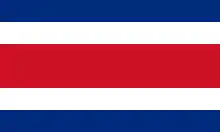 Costa Rica – National Restoration Party, New Republic Party, National Integration Party[206][207][208][209]
Costa Rica – National Restoration Party, New Republic Party, National Integration Party[206][207][208][209] Croatia – Miroslav Škoro Homeland Movement,[210][211] Croatian Conservative Party
Croatia – Miroslav Škoro Homeland Movement,[210][211] Croatian Conservative Party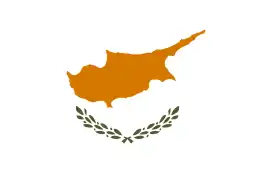 Cyprus – ELAM,[212] Solidarity Movement
Cyprus – ELAM,[212] Solidarity Movement Czech Republic – Freedom and Direct Democracy[213]
Czech Republic – Freedom and Direct Democracy[213] Denmark – Danish People's Party[214][197][215]
Denmark – Danish People's Party[214][197][215] Estonia – Conservative People's Party of Estonia[216][214]
Estonia – Conservative People's Party of Estonia[216][214] European Union – Identity and Democracy Party, European Conservatives and Reformists Party (factions)
European Union – Identity and Democracy Party, European Conservatives and Reformists Party (factions) Finland – Finns Party[197][214]
Finland – Finns Party[197][214] France – National Rally,[197][215] Debout la France,[217]
France – National Rally,[197][215] Debout la France,[217] Germany – Alternative for Germany[214][197]
Germany – Alternative for Germany[214][197] Greece – Greek Solution,[218] New Democracy (factions)[219]
Greece – Greek Solution,[218] New Democracy (factions)[219] Hungary – Fidesz,[197] Jobbik, Our Homeland Movement[214][220]
Hungary – Fidesz,[197] Jobbik, Our Homeland Movement[214][220]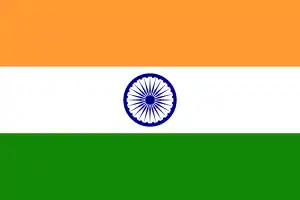 India – Bharatiya Janata Party,[221] Shiv Sena[222]
India – Bharatiya Janata Party,[221] Shiv Sena[222]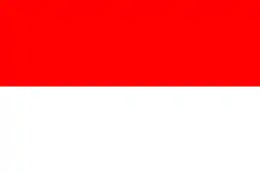 Indonesia – Great Indonesia Movement Party[223]
Indonesia – Great Indonesia Movement Party[223] Italy – League,[197][224] Brothers of Italy,[214] Five Star Movement (factions),[214] Forza Italia (factions)[225]
Italy – League,[197][224] Brothers of Italy,[214] Five Star Movement (factions),[214] Forza Italia (factions)[225] Israel – Likud (factions) [226][227]
Israel – Likud (factions) [226][227] Japan – Liberal Democratic Party,[228] Nippon Ishin no Kai,[229][230] Kibō no Tō[231]
Japan – Liberal Democratic Party,[228] Nippon Ishin no Kai,[229][230] Kibō no Tō[231] Latvia – National Alliance,[232][214] Who owns the state?[233]
Latvia – National Alliance,[232][214] Who owns the state?[233] Liechtenstein – The Independents[234][235]
Liechtenstein – The Independents[234][235] Lithuania – Order and Justice[214][236]
Lithuania – Order and Justice[214][236] Luxembourg – Alternative Democratic Reform Party[237]
Luxembourg – Alternative Democratic Reform Party[237] Netherlands – Party for Freedom,[198] Forum for Democracy[156]
Netherlands – Party for Freedom,[198] Forum for Democracy[156] North Macedonia – VMRO-DPMNE[238]
North Macedonia – VMRO-DPMNE[238] Norway – Progress Party[239]
Norway – Progress Party[239] Peru – Popular Force
Peru – Popular Force Philippines – Nacionalista Party
Philippines – Nacionalista Party Poland – United Right (Law and Justice,[214] United Poland), Confederation (KORWiN,[240] National Movement)
Poland – United Right (Law and Justice,[214] United Poland), Confederation (KORWiN,[240] National Movement) Portugal – Chega[241]
Portugal – Chega[241] Romania – Alliance for the Unity of Romanians[242]
Romania – Alliance for the Unity of Romanians[242] Russia – United Russia,[243] Liberal Democratic Party of Russia,[244] Rodina[245]
Russia – United Russia,[243] Liberal Democratic Party of Russia,[244] Rodina[245] Serbia – Serbian Progressive Party,[246][247] Serbian People's Party,[248] Serbian Patriotic Alliance[249]
Serbia – Serbian Progressive Party,[246][247] Serbian People's Party,[248] Serbian Patriotic Alliance[249] Slovakia – Kotleba – People's Party Our Slovakia,[250][251] We Are Family[252]
Slovakia – Kotleba – People's Party Our Slovakia,[250][251] We Are Family[252] Slovenia – Slovenian Democratic Party, Slovenian National Party
Slovenia – Slovenian Democratic Party, Slovenian National Party South Africa – Freedom Front Plus[253]
South Africa – Freedom Front Plus[253] South Korea – People Power Party
South Korea – People Power Party Spain – Vox[254]
Spain – Vox[254] Sweden – Sweden Democrats[197][214]
Sweden – Sweden Democrats[197][214] Switzerland – Swiss People's Party,[255] Geneva Citizens' Movement,[256][257] Ticino League[258]
Switzerland – Swiss People's Party,[255] Geneva Citizens' Movement,[256][257] Ticino League[258] Turkey – Justice and Development Party,[259] Nationalist Movement Party,[260] İyi Party[261][262]
Turkey – Justice and Development Party,[259] Nationalist Movement Party,[260] İyi Party[261][262] Ukraine – Svoboda[263][264]
Ukraine – Svoboda[263][264] United Kingdom – Conservative Party (factions), Democratic Unionist Party[193]
United Kingdom – Conservative Party (factions), Democratic Unionist Party[193] United States – Republican Party (factions)[265][266][267]
United States – Republican Party (factions)[265][266][267]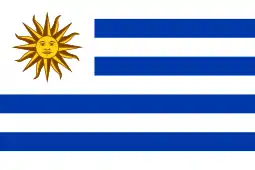 Uruguay – Open Cabildo
Uruguay – Open Cabildo
Not represented in national legislatures
 Albania – Red and Black Alliance,[268] Albanian National Front Party
Albania – Red and Black Alliance,[268] Albanian National Front Party.svg.png.webp) Australia – Shooters, Fishers and Farmers Party, Australian Protectionist Party, Rise Up Australia, Australian Liberty Alliance
Australia – Shooters, Fishers and Farmers Party, Australian Protectionist Party, Rise Up Australia, Australian Liberty Alliance Austria – Alliance for the Future of Austria,[269] Free Party Salzburg
Austria – Alliance for the Future of Austria,[269] Free Party Salzburg.svg.png.webp) Belgium – Libertair, Direct, Democratisch,[270][271] People's Party[272] VLOTT
Belgium – Libertair, Direct, Democratisch,[270][271] People's Party[272] VLOTT Brazil – Alliance for Brazil, Brazilian Labour Renewal Party
Brazil – Alliance for Brazil, Brazilian Labour Renewal Party Bulgaria – Bulgaria Without Censorship[214]
Bulgaria – Bulgaria Without Censorship[214].svg.png.webp) Canada – People's Party of Canada,[76] Alliance of the North, National Advancement Party of Canada
Canada – People's Party of Canada,[76] Alliance of the North, National Advancement Party of Canada Chile – Republican Party
Chile – Republican Party Croatia – Croatian Party of Rights, Croatian Party of Rights Dr. Ante Starčević, Independents for Croatia
Croatia – Croatian Party of Rights, Croatian Party of Rights Dr. Ante Starčević, Independents for Croatia Czech Republic – Workers' Party of Social Justice,[273] Coalition for Republic – Republican Party of Czechoslovakia
Czech Republic – Workers' Party of Social Justice,[273] Coalition for Republic – Republican Party of Czechoslovakia Denmark – Progress Party[274]
Denmark – Progress Party[274] Finland – Blue and White Front, Seven Star Movement, Blue Reform
Finland – Blue and White Front, Seven Star Movement, Blue Reform France – Alsace First
France – Alsace First Germany – National Democratic Party of Germany,[275] Citizens' Movement Pro Chemnitz,[276][277] German Social Union, The Republicans
Germany – National Democratic Party of Germany,[275] Citizens' Movement Pro Chemnitz,[276][277] German Social Union, The Republicans Greece – Golden Dawn,[278] Popular Orthodox Rally,[279][280] Independent Greeks[214][131]
Greece – Golden Dawn,[278] Popular Orthodox Rally,[279][280] Independent Greeks[214][131] Iceland – Icelandic National Front
Iceland – Icelandic National Front India – Maharashtra Navnirman Sena, Hindu Mahasabha[281]
India – Maharashtra Navnirman Sena, Hindu Mahasabha[281] Ireland – National Party, Irish Freedom Party
Ireland – National Party, Irish Freedom Party Israel – Otzma Yehudit
Israel – Otzma Yehudit Italy – Tricolour Flame, Die Freiheitlichen,[282] Citizens' Union for South Tyrol,[283][284] South Tyrolean Freedom[285]
Italy – Tricolour Flame, Die Freiheitlichen,[282] Citizens' Union for South Tyrol,[283][284] South Tyrolean Freedom[285] Malta – Moviment Patrijotti Maltin
Malta – Moviment Patrijotti Maltin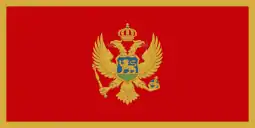 Montenegro – Party of Serb Radicals, True Montenegro, Serb List
Montenegro – Party of Serb Radicals, True Montenegro, Serb List Netherlands – Forza! Nederland
Netherlands – Forza! Nederland New Zealand – New Conservative Party, Advance New Zealand, Vision NZ, New Zealand Public Party
New Zealand – New Conservative Party, Advance New Zealand, Vision NZ, New Zealand Public Party Poland – Kukiz'15, Congress of the New Right,[240] Real Politics Union)
Poland – Kukiz'15, Congress of the New Right,[240] Real Politics Union) Portugal – National Renovator Party, Portugal Pro-Life
Portugal – National Renovator Party, Portugal Pro-Life Romania – National Identity Bloc in Europe (Greater Romania Party, United Romania Party, Noua Dreaptă), New Generation Party,[286] M10
Romania – National Identity Bloc in Europe (Greater Romania Party, United Romania Party, Noua Dreaptă), New Generation Party,[286] M10 Serbia – Serbian Radical Party,[287][288][289] Dveri,[290] Hungarian Hope Movement, People's Peasant Party
Serbia – Serbian Radical Party,[287][288][289] Dveri,[290] Hungarian Hope Movement, People's Peasant Party Slovakia – Slovak National Party
Slovakia – Slovak National Party South Korea – New Pro-Park Party, Liberty Republican Party, Dawn of Liberty
South Korea – New Pro-Park Party, Liberty Republican Party, Dawn of Liberty Sweden - Alternative for Sweden
Sweden - Alternative for Sweden Switzerland – Federal Democratic Union of Switzerland, Freedom Party of Switzerland, Swiss Democrats
Switzerland – Federal Democratic Union of Switzerland, Freedom Party of Switzerland, Swiss Democrats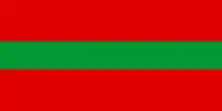 Transnistria – Liberal Democratic Party of Pridnestrovie
Transnistria – Liberal Democratic Party of Pridnestrovie Ukraine – Congress of Ukrainian Nationalists
Ukraine – Congress of Ukrainian Nationalists United Kingdom – British National Party,[291][292] For Britain, Brexit Party, Veterans and People's Party, UK Independence Party,[293]
United Kingdom – British National Party,[291][292] For Britain, Brexit Party, Veterans and People's Party, UK Independence Party,[293] United States – Constitution Party
United States – Constitution Party
Former or disbanded right-wing populist parties
 Austria – Team Stronach[269]
Austria – Team Stronach[269].svg.png.webp) Belgium – National Front, Vlaams Blok, People's Party
Belgium – National Front, Vlaams Blok, People's Party.svg.png.webp) Canada – Union Nationale (Quebec),[294] Ralliement national,[295] Action démocratique du Québec,[296] Reform Party of Canada,[297] Canadian Alliance,[298] Social Credit Party,[299] Wildrose Party (Alberta)
Canada – Union Nationale (Quebec),[294] Ralliement national,[295] Action démocratique du Québec,[296] Reform Party of Canada,[297] Canadian Alliance,[298] Social Credit Party,[299] Wildrose Party (Alberta) Cyprus – New Horizons[300][301]
Cyprus – New Horizons[300][301] Croatia – Croatian Democratic Alliance of Slavonia and Baranja, Croatian Democratic Union (factions)[302]
Croatia – Croatian Democratic Alliance of Slavonia and Baranja, Croatian Democratic Union (factions)[302] Czech Republic – Public Affairs,[303] Dawn - National Coalition[304]
Czech Republic – Public Affairs,[303] Dawn - National Coalition[304] Denmark – Progress Party[305]
Denmark – Progress Party[305] Germany – Citizens' Movement Pro Cologne,[306] German Freedom Party,[307] German People's Union, Pro Germany Citizens' Movement,[308][309] Pro NRW,[310] German National People's Party
Germany – Citizens' Movement Pro Cologne,[306] German Freedom Party,[307] German People's Union, Pro Germany Citizens' Movement,[308][309] Pro NRW,[310] German National People's Party European Union – Movement for a Europe of Liberties and Democracy[282]
European Union – Movement for a Europe of Liberties and Democracy[282] Iceland – Citizens' Party[311]
Iceland – Citizens' Party[311] Italy – National Alliance[312]
Italy – National Alliance[312] Japan – Japan Restoration Party,[313][314][315]
Japan – Japan Restoration Party,[313][314][315] Netherlands – Centre Democrats,[316] Pim Fortuyn List[198][316][317]
Netherlands – Centre Democrats,[316] Pim Fortuyn List[198][316][317] South Korea – Democratic Republican Party, Liberty Korea Party,[318] Onward for Future 4.0
South Korea – Democratic Republican Party, Liberty Korea Party,[318] Onward for Future 4.0 Spain – Independent Liberal Group, Platform for Catalonia[319]
Spain – Independent Liberal Group, Platform for Catalonia[319] Sweden – New Democracy[311]
Sweden – New Democracy[311] Switzerland – Party of Farmers, Traders and Independents, Republican Movement
Switzerland – Party of Farmers, Traders and Independents, Republican Movement Syria – Arab Liberation Movement
Syria – Arab Liberation Movement United Kingdom – National Democrats
United Kingdom – National Democrats
See also
- Alt-right
- Right-wing antiscience
- Brexit
- Counter-Enlightenment
- Christian right
- Dark Enlightenment
- Economic nationalism
- Fascism
- Hindutva
- Left-wing populism
- National conservatism
- National liberalism
- Paternalistic conservatism
- Protectionism
- Reactionary
- Revisionist Zionism
- Right-wing authoritarianism
- Social conservatism
- Traditionalism
- White backlash
References
Notes
- Camus, Jean-Yves; Lebourg, Nicolas (20 March 2017). Far-Right Politics in Europe. Harvard University Press. pp. 12–13. ISBN 9780674971530.
- Eatwell, Roger; Goodwin, Matthew (25 October 2018). National Populism: The Revolt Against Liberal Democracy. Penguin UK. pp. 1–2. ISBN 9780241312018.
- Akkerman, Agnes (2003) "Populism and Democracy: Challenge or Pathology?" Acta Politica n.38, pp.147-159
- Greven, Thomas (May 2016). "The Rise of Right-wing Populism in Europe and the United States" (PDF). Friedrich-Ebert-Stiftung.
- Sharpe, Matthew. "The metapolitical long game of the European New Right". The Conversation. Retrieved 24 March 2017.
- Traub, James. "The Geert Wilders Effect and the national election in the Netherlands". chicagotribune.com. Retrieved 24 March 2017.
- Buruma, Ian (10 March 2017). "How the Dutch Stopped Being Decent and Dull". The New York Times. ISSN 0362-4331. Retrieved 24 March 2017.
- Bierbach, Mara (26 February 2019). "Climate protection: Where do the EU's right-wing populists stand?". Deutsche Welle. Retrieved 5 June 2019.
- "The New Nationalism". Online Library of Law & Liberty. 8 December 2016. Retrieved 24 March 2017.
- Taub, Amanda (8 July 2016). "A Central Conflict of 21st-Century Politics: Who Belongs?". The New York Times. ISSN 0362-4331. Retrieved 24 March 2017.
- North, Bonnie. "The Rise of Right-Wing Nationalist Political Parties in Europe". Retrieved 24 March 2017.
- "Fear of Diversity Made People More Likely to Vote Trump". The Nation. ISSN 0027-8378. Retrieved 24 March 2017.
- "The political lexicon of a billionaire populist". Washington Post. Retrieved 24 March 2017.
- "The End of Reaganism". POLITICO Magazine. Retrieved 24 March 2017.
- Edsall, Thomas (16 December 2014). "The Rise of 'Welfare Chauvinism'". New York Times. Retrieved 4 January 2015.
- Rippon, Haydn (4 May 2012). "The European far right: actually right? Or left? Or something altogether different?". The Conversation. Retrieved 4 January 2015.
- Matlack, Carol (20 November 2013). "The Far-Left Economics of France's Far Right". Bloomberg.com. Retrieved 4 January 2015.
- Kaplan & Weinberg 1998, pp. 1–2.
- Judis, John B. (5 October 2016). The Populist Explosion: How the Great Recession Transformed American and European Politics. Columbia Global Reports. ISBN 978-0997126440.
- Cooper, Ryan (15 March 2017). "The Great Recession clearly gave rise to right-wing populism". The Week. Retrieved 20 November 2017.
- Sarmadi, Dario (20 October 2015). "Far-right parties always gain support after financial crises, report finds". EURACTIV. Retrieved 20 November 2017.
- "The map which shows how Ukip support is growing in every constituency but two". The Independent. 15 May 2015. Retrieved 24 March 2017.
- Hunt, Alex (21 November 2014). "UKIP: The story of the UK Independence Party's rise". BBC News. Retrieved 24 March 2017.
- Lowe, Josh; Matthews, Owen; AM, Matt McAllester On 11/23/16 at 9:02 (23 November 2016). "Why Europe's populist revolt is spreading". Newsweek. Retrieved 24 March 2017.
- "Trump's 6 populist positions". POLITICO. Retrieved 24 March 2017.
- Norris 2005, pp. 43–44.
- Mudde, Cas (2007). Populist Radical Right Parties in Europe. Cambridge University Press. pp. 15–31. ISBN 9780511341434.
- Mudde, Cas; Kaltwasser, Cristóbal Rovira (2017). Populism: A Very Short Introduction. Oxford: Oxford University Press. pp. 34–35. ISBN 9780190234874.
- Eatwell, Roger (2017) "Populism and Fascism" in Kaltwasser, Cristóbal Rovira;Taggart, Paul; Espejo, Paulina Ochoa; and Ostiguy, Pierre eds. The Oxford Handbook of Populism
- Brown, Drew (October 31, 2018) "Where Does ‘Right-Wing Populism’ End, and Fascism Begin?" Vice
- Federico Finchelstein, Federico (2019) From Fascism to Populism in History Berkeley, California: University of California Press. pp.5-6 ISBN 9780520309357
- Berggren, Erik and Neergard, Andres "Populism: Protest, democratic challenge and right wing sxtremism" in Dahlstedt, Magnus and Neergaard, Andres eds. (2015) International Migration and Ethnic Relations: Critical Perspectives/ New York: Routledge. p.179. ISBN 9781317655909
- Shenkman, Rick (September 8, 2019) "The Shocking Paper Predicting the End of Democracy" Politico Magazine
- Rydgren, Jens (2018). The Oxford Handbook of the Radical Right. Oxford University Press. p. 56. ISBN 9780190274559.
- Rooduijn, Matthijs (2014). "Vox populismus: a populist radical right attitude among the public?". Nations and Nationalism. 20 (1): 82. doi:10.1111/nana.12054. ISSN 1469-8129.
- Kaplan & Weinberg 1998, pp. 10–11.
- "From 'Brexit' To Trump, Nationalist Movements Gain Momentum Around World". NPR.org. Retrieved 24 March 2017.
- Norris 2005, p. 44.
- Bisbee, James; Mosley, Layna; Pepinsky, Thomas B.; Rosendorff, B. Peter (2 July 2020). "Decompensating domestically: the political economy of anti-globalism". Journal of European Public Policy. 27 (7): 1090–1102. doi:10.1080/13501763.2019.1678662. S2CID 211341396.
- Camus, Jean-Yves; Lebourg, Nicolas (20 March 2017). Far-Right Politics in Europe. Harvard University Press. pp. 12–14. ISBN 9780674971530.
- Camus, Jean-Yves; Lebourg, Nicolas (20 March 2017). Far-Right Politics in Europe. Harvard University Press. pp. 178–179. ISBN 9780674971530.
- Rydgren, Jens (2005) "Is Extreme Right-Wing Populism Contagious? Explaining the Emergence of a New Party Family" European Journal of Political Research n.44, pp.413-37
- Camus, Jean-Yves; Lebourg, Nicolas (20 March 2017). Far-Right Politics in Europe. Harvard University Press. pp. 12–14, 16–17. ISBN 9780674971530.
- Stéphane François (24 August 2009). "Qu'est ce que la Révolution Conservatrice ?". Fragments sur les Temps Présents (in French). Retrieved 23 July 2019.
- Drake, D. (5 April 2005). French Intellectuals and Politics from the Dreyfus Affair to the Occupation. Springer. p. 32. ISBN 9780230006096.
- Ignazi 2002, p. 26.
- Camus, Jean-Yves; Lebourg, Nicolas (20 March 2017). Far-Right Politics in Europe. Harvard University Press. pp. 48–49, 178–179, 198. ISBN 9780674971530.
- Brustier, Gaël; Huelin, Jean-Philippe (2 March 2011). Voyage au bout de la droite (in French). Fayard/Mille et une nuits. ISBN 9782755504590.
- Mudde, C. (2002). The Ideology of the Extreme Right. Manchester University Press. ISBN 9780719064463. Retrieved 3 January 2015.
- Norris 2005, pp. 68–69, 72.
- Boulos, Guilherme. "Onda Conservadora". Retrieved 11 October 2017. Cite journal requires
|journal=(help) - "PRTB oficializa candidatura de Levy Fidelix à Presidência da República". Eleições 2014 em São Paulo (in Portuguese). 15 June 2014. Retrieved 23 November 2018.
- "Levy se assume como candidato da direita e promete defender ditadura - Notícias - Política". Política (in Portuguese). Retrieved 23 November 2018.
- "Apuração de votos e resultado das Eleições 2014 (Fonte: TSE): Presidente e candidatos eleitos - UOL Eleições 2014". UOL Eleições 2014 (in Portuguese). Retrieved 23 November 2018.
- "Levy Fidelix anuncia apoio a Aécio Neves no segundo turno". Eleições 2014 (in Portuguese). 15 October 2014. Retrieved 23 November 2018.
- Soares, José Manoel Montanha da Silveira (2017). "A onda conservadora: ensaios sobre os atuais tempos sombrios no Brasil". Revista Em Pauta. 15 (39). doi:10.12957/rep.2017.30390. ISSN 2238-3786.
- Phillips, Don (17 October 2017). "Accused of corruption, popularity near zero – why is Temer still Brazil's president?". The Guardian. Retrieved 5 November 2017.
- Watson, Kay. "Brazil's President Temer avoids corruption trial". BBC. Retrieved 5 November 2017.
- "Brazil's Senate president ousted over embezzlement charges". The Guardian. 6 December 2016. Retrieved 5 November 2017.
- "Deputado Jair Bolsonaro deixa o PSC e se filia ao PSL" [Congressman Jair Bolsonaro leaves the PSC and joins the PSL] (in Portuguese). Pleno. 5 January 2018. Retrieved 16 September 2018.
- Pepe Escobar (9 October 2018). "Future of Western Democracy Being Played Out in Brazil". Consortium News. Retrieved 15 October 2018.
- "Trump Cements Alliance With Far-Right Brazilian President Bolsonaro". The Globe Post. 19 March 2019.
- "Lula lidera, e Bolsonaro se consolida em 2º, aponta Datafolha". Poder. 2 December 2017. Retrieved 7 December 2017.
- Rapoza, Kenneth (21 September 2016). "Lula's 'Clear Conscience' And Brazil's Inability To Explain Petrobras Scandal". Forbes. Retrieved 28 September 2016.
- Fonseca, Alana; Gimenes, Erick; Kaniak, Thais; Dionísio, Bibiana (12 July 2017). "Lula é condenado na Lava Jato no caso do triplex" (in Portuguese). G1. Retrieved 23 September 2017.
- "Urgente: Lula É Condenado Por Unanimidade Pelo TRF-4".
- Gavin Fernando (29 April 2016). "Is this the world's most repulsive politician?". News.com.au.
- Simon Romero (7 May 2016). "Conservative's Star Rises in Brazil as Polarizing Views Tap Into Discontent". The New York Times.
- "The Most Misogynistic, Hateful Elected Official in the Democratic World: Brazil's Jair Bolsonaro – The Intercept". The Intercept. 11 December 2014.
- "A lightning rod for attacks by Brazil's right wing". Los Angeles Times. Retrieved 7 September 2018.
- Watts, Jonathan (18 April 2016). "Dilma Rousseff: Brazilian congress votes to impeach president". The Guardian. ISSN 0261-3077. Retrieved 18 April 2016.
- "'Irresponsible' populism: Lisa Raitt slams Kevin O'Leary, Kellie Leitch".
- "Could Trumpism Take Root in Canada?". Pacific Standard. 15 March 2017. Retrieved 24 March 2017.
- "Patrick Brown returns to Queen's Park for budget speech". Toronto Star. 28 March 2018.
- "Anti-elitist politicians in Canada are courting immigrants". The Economist. 19 April 2018.
- "Maxime Bernier Launches 'The People's Party of Canada'". Complex. 14 September 2018.
- Editorial Board (2018). "Costa Rica shows an admirable resistance to demagoguery". The Washington Post. Retrieved 10 December 2018.
- Henley, Jon (2 April 2018). "Costa Rica: Carlos Alvarado wins presidency in vote fought on gay rights". The Guardian. Retrieved 10 December 2018.
- "Costa Rica's Election: It Wasn't the Economy, Stupid!". Q. 19 February 2018. Retrieved 10 December 2018.
- Arco, Eduardo (9 February 2018). "Costa Rica's Rollercoaster Election Was About More Than Gay Marriage". WPR. Retrieved 10 December 2018.
- Leonard J. Moore, "Good Old-Fashioned New Social History and the Twentieth-Century American Right," Reviews in American History vol 24#4 (1996) pp. 555–73, quote at p. 561
- Stark, Steven (February 1996). "Right-Wing Populist". The Atlantic.
- Scott Rasmussen and Doug Schoen, Mad As Hell: How the Tea Party Movement Is Fundamentally Remaking Our Two-Party System (2010) quotes on p. 19
- David Barstow, "Tea Party Lights Fuse for Rebellion on Right," New York Times Feb 6, 2010
- "What On Earth Is Ted Cruz Doing?". Vanity Fair. 23 September 2016.
- "Playing with fear". The Economist. 12 December 2015.
- Maltsev, Yuri (2013). The Tea Party Explained: From Crisis to Crusade. Open Court. p. 26.
- "In The Freedom Caucus, Trump Meets His Match". The Atlantic. 7 April 2017.
- Dolgert 2016; Greven 2016.
- Neiwert, David (2016). "Trump and Right-Wing Populism: A Long Time Coming" (PDF). The Public Eye. No. 86. Somerville, Massachusetts: Political Research Associates. pp. 3, 19. ISSN 0275-9322. Retrieved 9 August 2016.
- "The future of Bannonism". The Economist. 25 August 2017.
- Frey, Carl; Berger, Thor; Chen, Chinchih (2018). "Political machinery: did robots swing the 2016 US presidential election?". Oxford Review of Economic Policy. 34 (3): 418–442. doi:10.1093/oxrep/gry007. Retrieved 24 December 2019.
- "The rise of populist politics in Australia". BBC. 1 March 2017.
- "Pauline Hanson's One Nation emerges as government's most reliable Senate voting partner". Sydney Morning Herald. 4 March 2017.
- "Turnbull challenged by populist upstart". The Times. 7 February 2017.
- "Meet Bob and David, our new libertarian senators". Australian Financial Review. 12 July 2014.
- The mice that may yet roar: who are the minor right-wing parties?. The Conversation. 28 August 2013.
- "Bernardi's alliance intends to bloc Xenophon". The Australian. 27 April 2017.
- Mondon, Aurélien (2013). The Mainstreaming of the Extreme Right in France and Australia. Routledge.
If ... Abbott failed to satisfy the electorate he has assuaged with his right-wing populism, a return to more traditionally extreme politics could be a real possibility
- "Australia's Turnbull Digs In as Rival Dutton Seeks Leadership". Bloomberg. 22 August 2018.
- , Ex-adviser Steve Bannon says Abe was 'Trump before Trump,' urges him to play hardball with China, Japan Times, 8 March 2019.
- "Populism visits Pakistan - Daily Times". Daily Times. 17 August 2018. Retrieved 29 October 2018.
- "The limits of populism". Retrieved 29 October 2018.
- Jang Hoon. "Liberty Korea Party, conservative populism has no future". JoongAng Ilbo. Retrieved 5 April 2018.
- "이언주는 '젊은 세대'로서 '자국민 중심주의'를 외친다". 21 November 2018. Retrieved 21 November 2018.
- "홍준표 "중소기업 외국인노동자도 최저임금 올려줘야 하나"".
- "EU leaders to hold talks on Russian political meddling". Financial Times. Retrieved 29 January 2017.
- "Czech Republic accuses Putin of backing EU's rightwing". Financial Times. Retrieved 29 January 2017.
- Adler, David; Ansell, Ben (2019). "Housing and populism". West European Politics. 43 (2): 344–365. doi:10.1080/01402382.2019.1615322.
- "Elections 2004 – Flemish Council – List Results". polling2004.belgium.be. Retrieved 3 January 2015.
- "Court rules Vlaams Blok is racist". BBC News. 9 November 2004.
- Vlaams Belang (7 January 2005). "Programmaboek 2004" (PDF). Archived from the original (PDF) on 5 March 2016. Retrieved 3 January 2015.
- Liphshiz, Cnaan (12 December 2008). "Advertisement". Haaretz. haaretz.com. Retrieved 3 January 2015.
- "Vlaams Parlement". vlaamsparlement.be. Archived from the original on 7 January 2015. Retrieved 3 January 2015.
- "De Belgische Kamer van volksvertegenwoordigers". www.dekamer.be. Archived from the original on 28 June 2013.
- https://vp2019.vlaanderenkiest.be/resultaten/#/parlement/02000
- "Новата партия на Марешки ще се казва "Воля"". Mediapool.bg.
- ""Воля" - новата партия на Марешки". news.bg. 28 November 2016.
- Lyman, Rick (24 February 2017). "In Bulgaria, a Businessman Who Talks (and Acts) Like Trump". New York Times. Retrieved 14 January 2021.
- "Bulgarian Volya Party to call for referendum on leaving NATO". Radio Bulgaria. 3 May 2018. Retrieved 14 January 2021.
- Katsourides, Yiannos (December 2013). "Determinants of extreme right reappearance in Cyprus: The National Popular Front (ELAM), Golden Dawn's sister party". South European Society and Politics. 18 (4): 567–589. doi:10.1080/13608746.2013.798893. S2CID 153418352.CS1 maint: ref=harv (link)
- Jens Rydgren. "Explaining the Emergence of Radical Right-Wing Populist Parties: The Case of Denmark" West European Politics, Vol. 27, No. 3, May 2004, pp. 474–502."
- Givens, Terri E. (2005). Voting radical right in Western Europe. Cambridge University. pp. 136–39. ISBN 978-0-521-85134-3.
- "Head of Danish Populist Party to Resign". Associated Press. 8 August 2012. Retrieved 8 August 2012.
- Eddy, Melissa (18 June 2015). "Anti-Immigrant Party Gains in Denmark Elections". The New York Times. ISSN 0362-4331. Retrieved 24 March 2017.
- "The Party Program of the Danish People's Party". danskfolkeparti. October 2002. Archived from the original on 19 December 2013.
- "Her er Danmarks nye borgerlige parti: Vil udfordre DF og LA" (in Danish). TV 2 News. 20 October 2015. Retrieved 27 December 2016.
- "Alma-kysely: Keskustan alamäki kiihtyy – vihreät iskuetäisyydellä, perussuomalaiset nousee". Uusi Suomi (in Finnish). Retrieved 4 February 2019.
- Nossiter, Adam (10 March 2018). "'Let Them Call You Racists': Bannon's Pep Talk to National Front". The New York Times. ISSN 0362-4331. Retrieved 30 March 2018.
- "Salafists and Right-Wing Populists Battle in Bonn". Spiegel. 5 July 2012.
- Boyka M. Stefanova (14 November 2014). The European Union beyond the Crisis: Evolving Governance, Contested Policies, and Disenchanted Publics. Lexington Books. p. 261. ISBN 978-1-4985-0348-8.
- Christian Karner; Bram Mertens (30 September 2013). The Use and Abuse of Memory: Interpreting World War II in Contemporary European Politics. Transaction Publishers. p. 168. ISBN 978-1-4128-5203-6.
- "Greece anti-bailout leader Tsipras made prime minister". BBC News. 26 January 2015.
- "Greek far-right leader vows to 'take back' İstanbul, İzmir". todayszaman.com. Archived from the original on 3 November 2013. Retrieved 3 January 2015.
- Squires, Nick (2 May 2013). "Golden Dawn's 'Greeks only' soup kitchen ends in chaos". The Daily Telegraph. London.
- "Archived copy" (PDF). Archived from the original (PDF) on 16 July 2011. Retrieved 15 January 2011.CS1 maint: archived copy as title (link)
- "Tribunes and Patricians: Radical Fringe Parties in the 21st Century" (PDF). carleton.ca. 16 January 2013. Archived from the original (PDF) on 14 July 2014. Retrieved 3 January 2015.
- "Continent of Fear: The Rise of Europe's Right-Wing Populists". Spiegel Online. spiegel.de. 28 September 2010. Retrieved 3 January 2015.
- "Così la Lega conquista nuovi elettori (non solo al nord)". ilfoglio.it. Archived from the original on 21 May 2014. Retrieved 3 January 2015.
- "Lega Nord: Maroni ne' destra ne' sinistra, alleanze dopo congresso". asca.it. Archived from the original on 21 May 2014. Retrieved 3 January 2015.
- "INTERVISTA Matteo Salvini (Lega): "Renzi? Peggio di Monti, vergognoso con la Merkel". termometropolitico.it. 20 March 2014. Retrieved 3 January 2015.
- "Lega Nord". leganord.org. Retrieved 3 January 2015.
- Tambini, Damian (6 December 2012). Nationalism in Italian Politics: The Stories of the Northern League, 1980–2000. Routledge. ISBN 9781134540013.
- Russo Bullaro, Grace (2010). From Terrone to Extracomunitario: New Manifestations of Racism in Contemporary Italian Cinema : Shifting Demographics and Changing Images in a Multi-cultural Globalized Society. Troubador Publishing Ltd. pp. 179–81. ISBN 9781848761766.
- Willey, David (14 April 2012). "The rise and fall of Northern League founder Umberto Bossi". BBC News. Retrieved 28 October 2015.
- Pullella, Philip (8 March 2011). "Italy unity anniversary divides more than unites". Reuters. Retrieved 28 October 2015.
- Garau, Eva (17 December 2014). Politics of National Identity in Italy: Immigration and 'Italianità'. Routledge. pp. 110–11. ISBN 9781317557661. Retrieved 28 October 2015.
- "Italy's Northern League Is Suddenly In Love With the South". Bloomberg.com. 20 February 2018. Retrieved 2 March 2018.
- "Rivoluzione nella Lega: cambiano nome e simbolo". 24 July 2017. Retrieved 2 March 2018.
- "Lega, nuovo simbolo senza "nord". Salvini: "Sarà valido per tutta Italia"". 27 October 2017. Retrieved 2 March 2018.
- Liang, Christina (2016), Europe for the Europeans: The Foreign and Security Policy of the Populist Radical Right, Routledge, p. 187
- Feffer, John (23 November 2016). "What Europe Can Teach Us about Trump". Foreign Policy in Focus.
- "In pictures: Death of Pim Fortuyn". BBC News. 7 May 2002.
- "Far-right outcast Geert Wilders vows to 'de-Islamise' the Netherlands after taking lead in Dutch polls". The Independent. 12 February 2017. Retrieved 24 March 2017.
- Lauren Said-Moorhouse; Bryony Jones. "Dutch elections: Wilders' far-right party beaten, early results show". CNN. Retrieved 24 March 2017.
- "The Dutch defeat 'the wrong kind of populism'". Heinrich Böll Foundation. 22 March 2017.
- Faber, Sebastiaan (5 April 2018). "Is Dutch Bad Boy Thierry Baudet the New Face of the European Alt-Right?". The Nation.
- "In Poland, a right-wing, populist, anti-immigrant government sees an ally in Trump". LA Times. 5 July 2017. Retrieved 13 July 2017.
- "Korwin-Mikke: Feudalizmie wróć! | Najwyższy Czas!". nczas.com. 7 January 2012. Retrieved 3 January 2015.
- "Program KNP". nowaprawicajkm.pl. Archived from the original on 7 January 2015. Retrieved 3 January 2015.
- "Korwin-Mikke – guru nonsensu Gazeta wSieci". wsieci.pl. Retrieved 3 January 2015.
- "Wirus korwinizmu – Krzysztof Derebecki – Mój lewicowy punkt widzenia". lewica.pl. Retrieved 3 January 2015.
- Gálvez, José María Jiménez (3 December 2018). "Vox: the far-right party that made shock gains in the regional polls". El País. ISSN 1134-6582. Retrieved 2 May 2019.
- Marcos, José; Sáiz, Eva; Blas, Elsa García de; Junquera, Natalia (3 December 2018). "Spain's center-right mulls deal with Vox to gain control of Andalusia". El País. ISSN 1134-6582. Retrieved 2 May 2019.
- Loucaides, Sohail Jannessari, Darren. "Spain's Vox Party Hates Muslims—Except the Ones Who Fund It". Foreign Policy. Retrieved 2 May 2019.
- Pardo, Pablo. "Make Spain Great Again". Foreign Policy. Retrieved 2 May 2019.
- "Programa electoral". VOX (in Spanish). Retrieved 2 May 2019.
- Rodríguez, Jorge A. (3 December 2018). "Far-right Spanish political party Vox: What are its policies?". El País. ISSN 1134-6582. Retrieved 2 May 2019.
- González, Miguel (4 April 2019). "Vox party official under scrutiny for alleged hate speech against Muslims". El País. ISSN 1134-6582. Retrieved 3 May 2019.
- Lucio, Lourdes; Sáiz, Eva; País, El (15 January 2019). "Protests outside Andalusian parliament as investiture debate begins". El País. ISSN 1134-6582. Retrieved 2 May 2019.
- Valdés, Isabel; Mora, Antonio J. (16 January 2019). "Thousands of women march across Spain against far-right party Vox". El País. ISSN 1134-6582. Retrieved 2 May 2019.
- González, Miguel (29 April 2019). "Vox enters Congress for the first time but falls short of expectations". El País. ISSN 1134-6582. Retrieved 2 May 2019.
- Jones, Sam (23 April 2019). "Spain's general election 2019: all you need to know". The Guardian. ISSN 0261-3077. Retrieved 2 May 2019.
- Reuters, Source (29 April 2019). "'The future has won,' says Spain's Socialist party leader after election victory – video report". The Guardian. ISSN 0261-3077. Retrieved 2 May 2019.
- Skenderovic 2009, p. 124: "... and prefers to use terms such as 'national-conservative' or 'conservative-right' in defining the SVP. In particular, 'national-conservative' has gained prominence among the definitions used in Swiss research on the SVP".
- Geden 2006, p. 95.
- Ignazi 2006, p. 234.
- H-G Betz, 'Xenophobia, Identity Politics and Exclusionary Populism in Western Europe', L. Panitch & C. Leys (eds.), Socialist Register 2003 – Fighting Identities: Race, Religion and Ethno-nationalism, London: Merlin Press, 2002, p. 198
- "Antisemitism And Racism in Switzerland 2000-1". Archived from the original on 21 April 2002. Retrieved 3 January 2015.
- "Antisemitism and Racism in Switzerland 1999–2000". tau.ac.il. Archived from the original on 25 October 2007. Retrieved 28 April 2017.
- "Anti-immigration party wins Swiss election in 'slide to the Right'". The Daily Telegraph. Reuters. 19 October 2015. Retrieved 19 October 2015.
- "Anti-immigration SVP wins Swiss election in big swing to right". BBC News. 19 October 2015. Retrieved 19 October 2015.
- Larson, Nina (19 October 2015). "Swiss parliament shifts to right in vote dominated by migrant fears". Yahoo!. AFP. Retrieved 19 October 2015.
- "Amid rising fears over refugees, far-right party gains ground in Swiss election". Deutsche Welle. 19 October 2015. Retrieved 19 October 2015.
- Ashkenas, Jeremy; Aisch, Gregor (5 December 2016). "European Populism in the Age of Donald Trump". The New York Times. ISSN 0362-4331. Retrieved 24 March 2017.
- "Who wants to leave the European Union?". The Telegraph. Retrieved 24 March 2017.
- Goodwin & Milazzo 2015, pp. 172, 231; Heywood 2015, p. 139.
- Merrick, Jane; Rentoul, John (19 January 2014). "Ukip tops Independent on Sunday poll as the nation's favourite party". The Independent. London.
- "Poll says Labour still on course for 2015 victory – but UKIP is now Britain's 'favourite' political party". mirror.co.uk. 18 January 2014. Retrieved 3 January 2015.
- Ross, Tim (19 May 2013). "Tories begin defecting to Ukip over 'loons' slur". The Daily Telegraph. London.
- Levitz, Eric (30 June 2016). "Boris Johnson Brexit But Won't Buy it". New York Magazine.
- "Populism's Latest Twist: An Aristocrat Could Be Britain's Prime Minister". New York Observer. 14 July 2017.
- Ingle, Stephen (2008). The British Party System: An Introduction. Routledge. p. 156.
- Mondon, Aurelien (2016). The Mainstreaming of the Extreme Right in France and Australia. Routledge.
- "The mice that may yet roar: who are the minor right-wing parties?". The Conversation. 28 August 2013.
- Tessa Szyszkowitz (8 October 2019). "Austria: The Successful Populist". Royal United Services Institute.
- Hans-Jürgen Bieling (2015). "Uneven development and 'European crisis constitutionalism', or the reasons for and conditions of a 'passive revolution in trouble'". In Johannes Jäger; Elisabeth Springler (eds.). Asymmetric Crisis in Europe and Possible Futures: Critical Political Economy and Post-Keynesian Perspectives. Routledge. p. 110. ISBN 978-1-317-65298-4.
- Peter Starke; Alexandra Kaasch; Franca Van Hooren (2013). The Welfare State as Crisis Manager: Explaining the Diversity of Policy Responses to Economic Crisis. Palgrave Macmillan. p. 193. ISBN 978-1-137-31484-0.
- Historical Dictionary of the Republic of Macedonia, Dimitar Bechev, Scarecrow Press, 2009, ISBN 0810862956, p. 104.
- Smilova, Ruzha; Smilov, Daniel; Ganev, Georgi (2012). Democracy and the Media in Bulgaria: Who Represents the People?. Understanding Media Policies: A European Perspective. Palgrave Macmillan. pp. 48–49.
- "How Kellie Leitch touched off a culture war – Macleans.ca". macleans.ca. 23 September 2016. Retrieved 21 December 2016.
- "Groundswell of right-wing populism will test our Canadian resolve, readers say". thestar.com. 26 November 2016.
- "The popular comeback of populist politics". Toronto Sun.
- "Kellie Leitch latches on to Trump victory – Macleans.ca". www.macleans.ca.
- Blackman, Jesse (24 November 2016). "The Conservative Party of Canada is ripe for a populist takeover".
- País, El (2019). "Populismo religioso en las urnas". El País.
- Reid, Michael (2018). "La sombra de la vuelta al populismo". El País.
- "Populismo de derechas". Thinking Heads. 2018.
- Zúñiga Umaña, Fernando (2018). "Elecciones políticas en Costa Rica: vísperas de caos". Mundo.
- Prnjak, Hrvoje. "Projekt za vlast Miroslava Škore: novi vođa populista nada se Plenkovićevoj pobjedi, a nakon toga aktivirat će uhodani plan za 30 zastupnika u Saboru". slobodnadalmacija.hr. Retrieved 17 June 2020.
- Wölfl, Adelheid. "Kroatischer Premier will Pandemie für vorgezogene Wahlen nutzen". Der Standart. Retrieved 18 June 2020.
- "After Loss in Austria, a Look at Europe's Right-wing Parties". Haaretz. 24 May 2016.
- Nordsieck, Wolfram (2017). "Czechia". Parties and Elections in Europe.
- Pausch, Robert (4 February 2015). "Populismus oder Extremismus? – Radikale Parteien in Europa". Retrieved 28 April 2017 – via Die Zeit.
- Daniele Caramani; Yves Mény (2005). Challenges to Consensual Politics: Democracy, Identity, and Populist Protest in the Alpine Region. Peter Lang. p. 151. ISBN 978-90-5201-250-6.
- "Contentious politics in the Baltics: the 'new' wave of right-wing populism in Estonia". openDemocracy. 28 April 2016.
- Ivaldi, Gilles (2018). "Crowding the market: the dynamics of populist and mainstream competition in the 2017 French presidential elections". p. 6.
- Nordsieck, Wolfram (2019). "Greece". Parties and Elections in Europe.
- "Athens' youngest mayor: I'm interested in real life, not utopias". The Guardian. 4 June 2019.
- Betz, Hans-Georg (1994). Radical Right-Wing Populism in Western Europe (The New Politics of Resentment). Palgrave MacMillan. p. 4. ISBN 978-0-312-08390-8.
the majority of radical right-wing populist parties are radical in their rejection of the established socio-cultural and socio-political system
- Wodak, Ruth (2013). Right-Wing Populism in Europe: Politics and Discourse. A&C Black. p. 23.
- Prakash, Gyan (2010). Mumbai Fables. Princeton University Press. p. 9.
- Kaltwasser, Cristóbal Rovira (2017). The Oxford Handbook of Populism. Oxford University Press.
- Carlo Ruzza; Stefano Fella (2009). Re-inventing the Italian Right: Territorial Politics, Populism and 'post-fascism'. Routledge. pp. 43–44. ISBN 978-1-134-28634-8.
- Liang, Kristina (2016). Europe for the Europeans: The Foreign and Security Policy of the Populist Radical Right. Routledge. p. 187.
- Langford, Barry (2017). All Together Now. Biteback Publishing.
Netanyahu, leader of the right-wing populist party Likud, ran for re-election
- "Right-wing Populism Wins in Britain and Israel". Haaretz. 3 July 2016.
- Ganesan (2015). Bilateral Legacies in East and Southeast Asia. Institute of Southeast Asian Studies. p. 67.
- "Political factors and limitations that made the Abe administration the longest ever. (Japanese)". Newsweek Japan. 21 November 2019. Retrieved 21 February 2020.
一方で、日本維新の会は小さな政府論に右派的なポピュリズムを加えた政党ですが ...(On the other hand, the Japan Restoration Party is a political party that has added right-wing populism to its small government theory ...)
- Tom Lansford (2019). Political Handbook of the World 2018–2019. "... the JRP was a right-wing, populist grouping that advocated deregulation, educational reform, ..."
- Where Koike's new political party lost hope. The Japan Times. (2017.11.13) Retrieved 22 December 2018
- Auers; Kasekamp, Comparing Radical-Right Populism in Estonia and Latvia, pp. 235–236
- Henningsen, Bernd; Etzold, Tobias; Hanne, Krister (15 September 2017). The Baltic Sea Region: A Comprehensive Guide. BWV Verlag. p. 341. ISBN 9783830517276.
- "Liechtenstein Populist Party Gains Ground in Parliamentary Elections". Deutsche Welle. 5 February 2017. Retrieved 5 February 2017.
- Stefanini, Sara (5 February 2017). "Liechtenstein's Populists Gain Ground". Politico. Retrieved 5 February 2017.
- Balcere, Ilze (2011), Comparing Populist Political Parties in the Baltic States and Western Europe (PDF), European Consortium for Political Research, pp. 5–6
- Verlag, Bielefeld (2014). "Doing Identity in Luxembourg". Transaction Publishers: 55. Cite journal requires
|journal=(help) - Ljupcho Petkovski. Authoritarian Populism and Hegemony: Constructing 'the People' in Macedonia's illiberal discourse (PDF). Centre of Southeast European Studies.
- Wolfram Nordsieck (2013). "Parties and Elections in Europe: Norway". www.parties-and-elections.eu. Parties and Elections in Europe.
- "Rechtspopulistische und rechtsextreme Parteien in Europa". Federal Agency for Civic Education. December 2016.
- "Portugal's Socialists win election, now eye alliances". Star Tribune. 7 October 2019.
- "Romanian opposition takes narrow lead after election". BBC News. 7 December 2020. Archived from the original on 8 December 2020.
- Henceroth, Nathan (2019). "Open Society Foundations". In Ainsworth, Scott H.; Harward, Brian M. (eds.). Political Groups, Parties, and Organizations that Shaped America. ABC-CLIO. p. 739.
- Wolfram Nordsieck. "Parties and Elections in Europe". Retrieved 16 March 2015.
- Kuhrt, Natasha (2014). Russia and the World. Routledge. p. 25.
- "After Austria election, a look at Europe right wing parties". AP. 24 May 2016. Retrieved 24 May 2016.
- "Serbian political outline". Retrieved 28 April 2017.
- "The state of global right-wing populism in 2019". Quartz. 30 December 2019.
- https://orf.at/stories/3169963/
- Alica Rétiová. "A Hero Is Coming! The master narrative of Marián Kotleba in the Slovak regional election of 2013". Masaryk University. Retrieved 28 April 2017.
- "A right-wing extremist or people's protector? Media coverage of extreme right leader Marian Kotleba in 2013 regional elections in Slovakia | Kluknavská | Intersections. East European Journal of Society and Politics". Intersections.tk.mta.hu. Retrieved 9 December 2016.
- "Slowakei: Rechte wollen Fico verhindern". Der Standard (in German). Retrieved 28 April 2017.
- "ANC holds onto power in South Africa as other parties increase vote share". Times of India. 11 May 2019.
- "Appendix A: Classifying European populist parties". Pew Research Center. 14 October 2019.
- Mazzoleni, Oskar (2007), "The Swiss People's Party and the Foreign and Security Policy Since the 1990s", Europe for the Europeans: The Foreign and Security Policy of the Populist Radical Right, Ashgate, p. 223, ISBN 9780754648512
- "Les populistes brillent aux élections genevoises". Swissinfo (in French). 11 October 2009. Archived from the original on 26 September 2012. Retrieved 11 October 2009.
- "Cross-Border Issues Cloud Geneva Election Result". Swissinfo. 11 November 2013. Retrieved 15 December 2016.
- "NFP 40+ "Rechtsextremismus – Ursachen und Gegenmassnahmen" – SNF". www.snf.ch.
- Gunes, Cengiz (2013). "The Kurdish Question in Turkey". Routledge: 270. Cite journal requires
|journal=(help) - Abadan-Unat, Nermin (2011). Turks in Europe: From Guest Worker to Transnational Citizen. New York: Berghahn Books. p. 19. ISBN 9781845454258.
...the fascist Nationalist Movement Party...
- SPIEGEL, Maximilian Popp, DER. "Türkei: Das steht hinter Recep Tayyip Erdogans Neuwahl-Coup – DER SPIEGEL – Politik". www.spiegel.de.
- "Istanbul: Erdogans Widersacher".
- Kuzio, Taras (November–December 2010), "Populism in Ukraine in a Comparative European Context" (PDF), Problems of Post-Communism, 57 (6): 3–18, doi:10.2753/ppc1075-8216570601, S2CID 154825950, retrieved 16 October 2012,
Anti-Semitism only permeates Ukraine's far-right parties, such as Svoboda… Ukraine's economic nationalists are to be found in the extreme right (Svoboda) and centrist parties that propagate economic nationalism and economic protectionism.
- Ivaldi, Gilles (2011), "The Populist Radical Right in European Elections 1979-2009", The Extreme Right in Europe, Vandenhoeck & Ruprecht, p. 20, ISBN 9783525369227
- Panitch, Leo (2015). The Politics of the Right. NYU Press. p. ix.
- Cassidy, John (29 February 2016). "Donald Trump is Transforming the G.O.P. Into a Populist, Nativist Party". The New Yorker.
- Gould, J.J. (2 July 2016). "Why Is Populism Winning on the American Right?". The Atlantic.
- "Der Rückfall ins Nationale". Deutsche Welle. 2011.
- Eric Micklin (2015). "The Austrian Parliament and EU Affairs: Gradually Living Up to its Legal Potential". In Claudia Hefftler; Christine Neuhold; Olivier Rosenberg; et al. (eds.). The Palgrave Handbook of National Parliaments and the European Union. Palgrave Macmillan. p. 389. ISBN 978-1-137-28913-1.
- Cas Mudde; Cristóbal Rovira Kaltwasser (2012). Populism in Europe and the Americas: Threat Or Corrective for Democracy?. Cambridge University Press. p. 27. ISBN 978-1-107-02385-7. Retrieved 30 July 2013.
- "European Election Database (EED)". uib.no. Retrieved 28 April 2017.
- Pauwels, Teun (2013). Belgium: Decline of National Populism?. Exposing the Demagogues: Right-wing and National Populist Parties in Europe. Konrad-Adenauer-Stiftung, CES. p. 85.
- "Rechtspopulistische Parteien in Tschechien. - Vile Netzwerk". vile-netzwerk.de. Retrieved 28 April 2017.
- Paul Hainsworth (2008). The Extreme Right in Western Europe. Routledge. p. 49
- Christina Schori Liang (2013). "'Nationalism Ensures Peaces': the Foreign and Security Policy of the German Populist Radical Right After Reunification". In Christina Schori Liang (ed.). Europe for the Europeans: The Foreign and Security Policy of the Populist Radical Right. Ashgate Publishing, Ltd. p. 139. ISBN 978-1-4094-9825-4.
- Lokaler Aktionsplan für Demokratie, Toleranz und für ein weltoffenes Chemnitz (LAP). Archived 8 December 2012 at the Wayback Machine (PDF; 275 kB) Fortschreibung 2012. Stand: November 2011, veröffentlicht auf chemnitz.de
- Swen Uhlig: NPD plant Aufmarsch in Chemnitz, freiepresse.de, 16. Februar 2010.
- Antonis Galanopoulos: Greek right-wing populist parties and Euroscepticism(PDF), p.2 "Golden Dawn is also Eurosceptical and it is opposing Greece's participation in the European Union and the Eurozone"
- Gemenis, Kostas (2008) "The 2007 Parliamentary Election in Greece", Mediterranean Politics 13: 95–101 and Gemenis, Kostas and Dinas, Elias (2009) "Confrontation still? Examining parties' policy positions in Greece", Comparative European Politics.
- Art, David (2011), Inside the Radical Right: The Development of Anti-Immigrant Parties in Western Europe, Cambridge University Press, p. 188, ISBN 9781139498838
- Tamadonfar, Mehran (2013). Religion and Regimes. Lexington Books. p. 125.
- Wolfram Nordsieck. "Parties and Elections in Europe: The database about parliamentary elections and political parties in Europe, by Wolfram Nordsieck". Parties-and-elections.eu. Retrieved 27 April 2014.
- "BürgerUnion bei Wahlauftakt der Tiroler FPÖ" (in German). Retrieved 27 January 2018.
- "Herr Pöder, was tun Sie bei Pegida?", Salto.bz (in German), 13 January 2015, retrieved 27 January 2018
- "Nicht wählen ist keine Lösung.", Brennerbasisdemokratie.eu (in German), 25 February 2018, retrieved 27 January 2018
- Berend, Iván T. (2010), Europe Since 1980, Cambridge University Press, p. 134
- "Wolfram Nordsieck, Parties and Elections in Europe". Retrieved 11 December 2013.
- Wodak, Ruth; Mral, Brigitte (2013). Right-Wing Populism in Europe: Politics and Discourse. A&C Black. p. 19.
- "Populism in the Balkans. The Case of Serbia" (PDF). Retrieved 24 January 2017.
- "Desni populisti i ekstremisti u Europi". Retrieved 13 December 2018.
- Golder, M. (2003). "Explaining Variation in the Success of Extreme Right Parties in Western Europe". Comparative Political Studies. 36 (4): 432. doi:10.1177/0010414003251176. S2CID 55841713.
- Evans, Jocelyn A.J. (April 2005). "The dynamics of social change in radical right-wing populist party support". Comparative European Politics. 3 (1): 76–101. CiteSeerX 10.1.1.199.7394. doi:10.1057/palgrave.cep.6110050. S2CID 7805751.
- "Lords by party, type of peerage and gender". Parliament of the United Kingdom. 8 March 2013. Retrieved 13 July 2017.
- Simon Langlois; Jean-Paul Baillargeon; Gary Caldwell; Guy Fréchet; Madeleine Gauthier; Jean-Pierre Simard (1992). Recent Social Trends in Quebec, 1960-1990. McGill-Queen's Press - MQUP. p. 369. ISBN 978-0-7735-0879-8.
- Garth Stevenson (2004). Unfulfilled Union, 5th Edition: Canadian Federalism and National Unity. McGill-Queen's Press - MQUP. p. 108. ISBN 978-0-7735-3632-6.
- Theodore R. Marmor; Richard Freeman; Kieke G. H. Okma (2009). Comparative Studies and the Politics of Modern Medical Care. Yale University Press. p. 81. ISBN 978-0-300-15595-2.
- Amir Abedi (2004). Anti-Political Establishment Parties: A Comparative Analysis. Routledge. p. 39. ISBN 978-1-134-36369-8.
- Carol Gould; Pasquale Paquino (2001). Cultural Identity and the Nation-state. Rowman & Littlefield. p. 39. ISBN 978-0-8476-9677-2.
- Ian Budge; David Robertson; Derek Hearl (1987). Ideology, Strategy and Party Change: Spatial Analyses of Post-War Election Programmes in 19 Democracies. Cambridge University Press. p. 90. ISBN 978-0-521-30648-5.
- Nathalie Tocci (2007). Greece, Turkey and Cyprus. European Politics. Oxford University Press. p. 125.
- Stefan Engert (2010). EU Enlargement and Socialization: Turkey and Cyprus. Routledge. p. 146.
- "Croatia's conservatives reject rightwing populism with new leader". Financial Times. 18 July 2016.
- Klausmann, Alexandra (21 May 2010). "Tschechien: Jugend vereint gegen Linksparteien". Wiener Zeitung (in German). Archived from the original on 6 June 2011.
- "Czech elections: An angry electorate", The Economist, 25 October 2013
- Paul Hainsworth (2008). The Extreme Right in Europe. Routledge. p. 49. ISBN 978-1-134-15432-6.
- Alexander Häusler (Hrsg.): Rechtspopulismus als „Bürgerbewegung“. Kampagnen gegen Islam und Moscheebau und kommunale Gegenstrategien. VS Verlag für Sozialwissenschaften, Wiesbaden 2008, ISBN 978-3-531-15919-5.
- "Obdachlose Rechtspopulisten", Süddeutsche Zeitung, 11 January 2011, retrieved 30 August 2011
- "Pro Köln unterliegt vor Gericht", FOCUS, 10 July 2009, retrieved 19 October 2011
- "Pro Deutschland protestiert vor Norwegen-Botschaft", Berliner Morgenpost, 25 July 2011, retrieved 19 October 2011
- Kristian Frigelj: Rechtspopulisten planen Anti-Minarett-Kampagne. In: Die Welt, 14. Dezember 2009.
- Christina Bergqvist, ed. (1999). Equal Democracies?: Gender and Politics in the Nordic Countries. Nordic Council of Ministers. p. 320. ISBN 978-82-00-12799-4.
- De Lange, Sarah L. (2008), Radical Right-wing Populist Parties in Government: determinants of coalition membership (PDF), p. 9
- Foster, Malcolm (16 December 2012). "Japan Elections 2012: LDP Wins Majority In Parliamentary Elections". HuffPost. Archived from the original on 19 December 2012. Retrieved 7 November 2020.
- Soble, Jonathan (17 December 2012). "Portrait of Japan's main political parties". Financial Times. Nikkei, Inc. Retrieved 6 November 2020.
Politics: Populist right
- Wingfield-Hayes, Rupert (15 December 2012). "Japan loses faith in traditional politics". BBC News. Retrieved 6 November 2012.
There is growing support here for non-traditional parties, particularly right-wing populists who promise strong leadership and bold answers. The most prominent is the Japan Restoration Party led by two political mavericks - Toru Hashimoto, the Mayor of Osaka, and 80-year-old Shintaro Ishihara, the former governor of Tokyo.
- David Art (2011). "Memory Politics in Western Europe". In Uwe Backes; Patrick Moreau (eds.). The Extreme Right in Europe: Current Trends and Perspectives. Vandenhoeck & Ruprecht. p. 361. ISBN 978-3-647-36922-8.
- Andeweg, R. and G. Irwin Politics and Governance in the Netherlands, Basingstoke (Palgrave) p.49
- Jang Hoon (4 April 2018). "Liberty Korea Party, conservative populism has no future". JoongAng Ilbo. Retrieved 5 April 2018.
- Anglada: "Being populist and identitarian is being honestly democratic" Archived 3 October 2011 at the Wayback Machine Minuto Digital (Spanish)
Informational notes
- Freeden has developed in 1996 the idea that every ideology has "core" and "peripheral" concepts. Building on his work, Terance Ball (1999) has given the following definition: "A core concept is one that is both central to, and constitutive of, a particular ideology and therefore of the ideological community to which it gives inspiration and identity. For example, the concept of 'class' (and of course 'class struggle') is a key or core concept in Marxism, as 'gender' is in feminism, and 'liberty' (or 'individual liberty') is in liberalism, and so on through the list of leading ideologies."
- Mudde: authoritarianism "is the belief in a strictly ordered society, in which infringements of authority are to be punished severely. In this interpretation, [it] includes law and order and “punitive conventional moralism.” It does not necessarily mean an anti-democratic attitude, but neither does it preclude one. In addition, the authoritarian's submission to authority, established or not, is “not absolute, automatic, nor blind”. In other words, while authoritarians will be more inclined to accept (established) authority than non-authoritarians, they can and will rebel under certain circumstances."
- "Maximal" right-wing populists here give a preference for the état légal—which gives primacy to the law as expressed by the general will via election or referendum; against the Rechtsstaat—which limits the power of the democratic state (the majority) to protect the rights of minorities.
- Neo-populists, contrary to the Marxist worldview, do not oppose the "working class" to the "bourgeoisie" and capitalists, but rather the "people" to the "elites" and immigrants.
Bibliography
- Berlet, Chip and Matthew N. Lyons. 2000. Right-Wing Populism in America: Too Close for Comfort. New York: Guilford Press. ISBN 1-57230-568-1, ISBN 1-57230-562-2.
- Betz, Hans-Georg. Radical right-wing populism in Western Europe. New York: Palgrave Macmillan, 1994 ISBN 0-312-08390-4.
- Betz, Hans-Georg and Immerfall, Stefan. The New Politics of the Right: Neo-Populist Parties and Movements in Established Democracies. Houndsmill, Basingstoke, Hampshire, UK, Macmillan Press Ltd., 1998 ISBN 978-0-312-21338-1,
- Dolgert, Stefan (2016). "The Praise of Ressentiment: Or, How I Learned to Stop Worrying and Love Donald Trump". New Political Science. 38 (3): 354–370. doi:10.1080/07393148.2016.1189030. S2CID 147965459.
- Fielitz, Maik; Laloire, Laura Lotte (eds.) (2016). Trouble on the Far Right. Contemporary Right-Wing Strategies and Practices in Europe. Bielefeld: transcript. ISBN 978-3-8376-3720-5.
- Fritzsche, Peter. 1990. Rehearsals for Fascism: Populism and Political Mobilization in Weimar Germany. New York: Oxford University Press. ISBN 0-19-505780-5.
- Geden, Oliver (2006). Diskursstrategien im Rechtspopulismus: Freiheitliche Partei Österreichs und Schweizerische Volkspartei zwischen Opposition und Regierungsbeteiligung [Discourse Strategies in Right-Wing Populism: Freedom Party of Austria and Swiss People's Party between Opposition and Government Participation] (in German). Wiesbaden, Germany: VS Verlag. doi:10.1007/978-3-531-90430-6. ISBN 978-3-531-15127-4.
- Goodwin, Matthew; Milazzo, Caitlin (2015). UKIP: Inside the Campaign to Redraw the Map of British Politics. Oxford: Oxford University Press. ISBN 978-0198736110.
- Greven, Thomas (2016). The Rise of Right-wing Populism in Europe and the United States: A Comparative Perspective (PDF). Berlin: Friedrich-Ebert-Stiftung. Retrieved 9 August 2016.
- Heywood, Andrew (2015). Essentials of UK Politics (3rd ed.). London: Palgrave Macmillan. ISBN 978-1-137-53074-5.
- Ignazi, Piero (2002). "The Extreme Right: Defining the Object and Assessing the Causes". In Schain, Martin; Zolberg, Aristide R.; Hossay, Patrick (eds.). Shadows over Europe: The Development and Impact of the Extreme Right in Western Europe. New York: Palgrave Macmillan. ISBN 978-0-312-29593-6.
- ——— (2006) [2003]. Extreme Right Parties in Western Europe. Comparative Politics. Oxford University Press. ISBN 978-0-19-929159-5.
- Kaplan, Jeffrey; Weinberg, Leonard (1998). The Emergence of a Euro-American Radical Right. New Brunswick, New Jersey: Rutgers University Press. ISBN 978-0-8135-2564-8.
- Norris, Pippa (2005). Radical Right: Voters and Parties in the Electoral Market. Cambridge, England: Cambridge University Press. ISBN 978-0-521-84914-2.
- Skenderovic, Damir (2009). The Radical Right in Switzerland: Continuity and Change, 1945–2000. New York: Berghahn Books. ISBN 978-1-84545-580-4. JSTOR j.ctt9qcntn.
- Ware, Alan (1996). Political Parties and Party Systems. Oxford University Press. ISBN 978-0-19-878076-2.
Further reading
- Goldwag, Arthur. The New Hate: A History of Fear and Loathing on the Populist Right. Pantheon, February 2012, ISBN 978-0-307-37969-6.
- Wodak, Ruth. The politics of fear: What right-wing populist discourses mean. London: Sage, 2015. ISBN 9781446247006.
- Wodak, Ruth, Brigitte Mral and Majid Khosravinik, editors. Right wing populism in Europe: politics and discourse. London. Bloomsbury Academic. 2013. ISBN 9781780932453.
External links
- "Fact check: The rise of right-wing populism in Europe". Channel 4 News (UK). 28 September 2017.